
- Majors & Careers
- Online Grad School
- Preparing For Grad School
- Student Life

Top 10 Best 1-Year PhD Programs Online

Are you searching for the best 1-year PhD programs online? A growing number of students are choosing master’s and doctorate degrees with flexible, online models. In a highly competitive job market, having an advanced qualification gives you better salary potential and job prospects. However, not everyone can afford the time and costs of a traditional-length PhD program and living on-campus. If you’re a working professional and want to continue your studies, an online PhD is an excellent option.
Remember, don’t be fooled by the online mode. While the fastest PhD programs offer immense flexibility, they’re by no means easy. It can still be a major time commitment, and that’s where 1-year PhD programs online come into play. Additionally, not everyone will complete 1-year PhD programs in one year; rather, the curriculum makes it possible. Other obligations might force students to take two years to complete their programs.
Ready to find the shortest doctoral program online? Let’s get started!
Table of Contents
Best 1-Year PhD Programs Online
Chatham university.
Doctor of Nursing Practice (DNP)
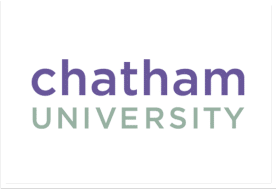
Chatham University is known for its social mobility and support for disadvantaged students. The school’s Doctor of Nursing Practice takes 12 months to complete if you stay on track, and you’ll need to have a master’s degree in nursing to be considered. The program aims to develop future nursing leaders who will improve healthcare delivery and could very well be the fastest doctorate degree program out there!
- Courses : Structure and application of contemporary nursing knowledge, quality improvement in health care, and communication & collaboration for healthcare leadership
- Duration : 12 months
- Credits : 27
- Tuition : $1,126 per credit
- Financial aid : Scholarships, graduate assistantships, veteran benefits, and alumni discounts
- Graduation rate : 62.5%
- Location : Pittsburgh, PA
Breyer State Theology University, Department of Ethereal Doctor of Psychology in Grief Counseling
Ethereal Accelerated Doctor of Psychology in Grief Counseling

Breyer State Theology University aims to provide students with high-level knowledge to follow religious careers as ministers, theologians, and counselors. Its Ethereal Doctor of Psychology program in Grief Counseling is also one of the shortest doctoral programs available, with a 1-year duration. It is one of the only online accelerated PhD that helps counselors become specialized in grief and bereavement.
- Courses : An overview of psychotherapy & counseling, ethics in grief counseling, and therapy with the terminally ill
- Tuition : $4,500
- Location : Brandenton, FL
Related: Top 10 Best PhD in Theology Programs
American International Theism University
Accelerated Ethereal Doctorate in Business Administration

The American International Theism University provides accelerated doctoral programs in various disciplines, including theology, business, social work , music, and the arts. This specific accelerated doctoral program prepares students for roles in education, research, government departments, or private business administration. The school offers many disciplines for its online accelerated PhD programs, and you can complete them within one year.
- Courses : International business, managerial economics, and strategic management
- Tuition : $7,950
- Location : Englewood, Florida
Frontier Nursing University

Frontier Nursing University was ranked third in the nation for the best online master’s program in FNP by the US News & World Report. This program is suitable for certified nursing practitioners and midwives with an MSN in nursing. The minimum duration for completion is 15 months.
- Duration : 15-18 months
- Credits : 30
- Tuition : $19,950
- Financial aid : Scholarships, loans, etc.
- Location : Versailles, KY
Boston University, Boston University College of Health & Rehabilitation Sciences: Sargent College
Online Post-Professional Doctor of Occupational Therapy (PP-OTD)

Boston University is the largest non-profit university in the US, offering a range of programs across various levels and disciplines. Its PP-OTD program is open to graduates in occupational therapy and has three intakes per year (May, September, and January). As part of this online accelerated PhD program, each semester requires you to work on your doctoral project parallel to other coursework.
- Courses : Contemporary trends in occupational therapy, health promotion and wellness, and social policy and disability practicum
- Duration : 18 months
- Credits : 33-36
- Tuition : $1,994 per credit
- Financial aid : Merit-based scholarships, loans, etc.
- Graduation rate: 87.2%
- Location : Boston, MA
Maryville University
Online Doctor of Nursing Practice

Maryville University is a private university that has offered post-secondary education since 1872. Its DNP enables practitioner nurses to pursue roles at the highest level of the nursing sector. The program is fully online, with no campus attendance required.
- Courses : Principles of epidemiology and biostatistics, advanced health care policy, and quality and patient safety in advanced nursing practice
- Duration : 20 months
- Credits : 33
- Courses : 11
- Tuition : $922 per credit
- Financial aid: Scholarships, student employment, loans, and grants
- Graduation rate: 44.6%
- Location : St. Louis, MO
The University of North Carolina, School of Medicine
Transitional Doctor of Physical Therapy (tDPT)
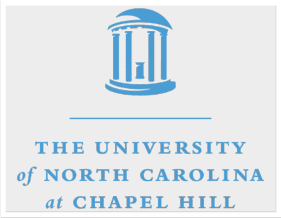
The University of North Carolina is a public research university, the flagship university of the North Carolina system. A public Ivy university, its transitional DPT program equips working professionals with specialized knowledge in three key areas: clinical foundation, clinical practice, and specialty practice.
- Duration : 24 months
- Tuition : Refer tuition page
- Financial aid : Scholarships and loans
- Graduation rate : 90.8%
- Location : Chapel Hill, NC
Grand Canyon University, College of Nursing and Healthcare Professions

Grand Canyon University is a private Christian university. Its DNP program is well-suited to professional working nurses and offers advanced education in nursing leadership, medical informatics, and public health . You can transfer up to three doctoral credits from previous studies.
- Courses : Emerging areas of human health, patient outcomes and sustainable change, and data analysis.
- Credits : 39
- Tuition : $725 per credit
- Financial aid : Scholarships, grants, and loans.
- Graduation rate : 37.6%
- Location : Phoenix, AZ
Liberty University
Doctor of Ministry (DMin)

Liberty University is a Christian university that offers various online programs at undergraduate, graduate, and doctoral levels in various disciplines. Its DMin program has a practical focus, equipping students to handle ministry-setting challenges. The program is made up of 8-week courses, and you can transfer up to 50% of degree credits.
- Tuition : $565 per credit hour
- Graduation rate: 28.5%
- Location : Lynchburg, VA
University of West Georgia
Doctor of Education in Professional Counseling and Supervision

The University of West Georgia is a public university with 12,700 students with a student-faculty ratio of 19:1. This doctoral program in counseling covers counseling methods through clinical and administrative supervision, advocacy and leadership, and program evaluation.
- Courses : Ethical leadership in education and advanced therapeutic techniques in counseling.
- Tuition : $241 per credit
- Financial aid : Scholarships, grants, federal work-study, and loans.
- Graduation rate : 39.1%
- Location : Carrollton, GA
What Are 1-Year PhD Programs Online?
A one-year PhD program is a doctorate you can complete in a very short time and generally requires 30 credits. Though short online PhD programs are called “1-year online doctoral programs”, very few universities offer PhD programs that can be completed in a year.
Most programs take around 15 months or so to complete, though some can last up to two years. Generally, any PhD you can complete in two years or less is considered in this category.
Related Reading: Top 15 Cheapest Online PhD Programs
Do All The Shortest PhD Programs Require a Dissertation?
No. Many short Ph.D. programs don’t require a dissertation. However, some of these programs involve a research project parallel to other coursework. This means the project must be completed within the program duration, unlike longer doctorates, where the research component is dedicated years after your coursework.
Why Choose a One-year PhD Program Online?
Many opt to study 1-year PhD programs online because they want to earn their doctorate in a short period and enter the competitive job market earlier. This can save you years, not to mention a significant amount of money. After all, many of us cannot afford to spend 5-7 years getting a PhD while balancing work and personal commitments.
Benefits and Challenges of Short Online Doctoral Programs
The key benefit of short doctoral programs is earning a PhD while saving a considerable amount of time and money . You’ll also be able to enter the job market with your doctoral qualification much earlier.
On the other hand, it can be challenging to complete a doctorate in such a short period , often making your studies rather intense. However, if you’re willing to work hard for these short years, you will be able to enjoy the many benefits of having the letter “PhD” after your name.
Frequently Asked Questions
What is the shortest doctoral program online.
You won’t find a doctoral program that can be completed in less than a year. Chatham University’s DNP (Doctor of Nursing Practice) and Breyer State Theology University’s Ethereal Accelerated Doctor of Psychology in Grief Counseling are two of the few, if not only, programs currently available that you can complete within a year. However, you can complete some in a little over a year or two years.
Can you Get a PhD in 1 Year?
Very few universities provide PhD programs that can be completed in exactly one year. Even many programs referred to as “1-year PhDs” actually take a little more to complete and up to two years. However, several doctorates can be completed within a year or two, though not across all disciplines.
What is the Quickest Doctorate Degree to Get?
Chatham University’s DNP (Doctor of Nursing Practice) is probably the quickest PhD you can get today, as you can finish it in 12 months. Breyer State Theology University’s Ethereal Accelerated Doctor of Psychology in Grief Counseling also takes only one year.
How Can an Online Program Help Accelerate the Doctorate-Earning Process?
On-campus programs typically have a rigid structure and fixed program duration, usually meaning you have to complete them within around three and seven years. On the other hand, many online programs give you the flexibility to go at your own pace. This often means that you can choose to accelerate through the courses fast and complete the program in a shorter period of time.
Are Fast Doctorate Programs as Good as Regular Programs?
You can’t make a direct comparison between fast doctoral programs and regular programs. Regular programs go at a slower pace, so you get plenty of time to study, observe, reflect, and experiment with what you’re learning.
On the other hand, fast doctoral programs involve a more intense type of study and, arguably, you need to put in more effort. However, these short programs also allow you to gain a valuable doctorate qualification and take your career to the next level in a comparatively short period of time.
Final Thoughts
Though rapid PhD programs are broadly called one-year programs, not all can be completed within one year. Many universities provide PhD programs that you can complete within two years. The best 1-year PhD programs online are an excellent way to earn a doctoral degree with minimal disruption to your work and personal life.
If you’re interested in exploring other PhD programs, take a look at our guides on the best PhD programs in marketing , psychology , and history .
Related: Top 10 Highest Paying PhD Degrees in 2022

Lisa Marlin
Lisa is a full-time writer specializing in career advice, further education, and personal development. She works from all over the world, and when not writing you'll find her hiking, practicing yoga, or enjoying a glass of Malbec.
- Lisa Marlin https://blog.thegradcafe.com/author/lisa-marlin/ 30+ Best Dorm Room Essentials for Guys in 2024
- Lisa Marlin https://blog.thegradcafe.com/author/lisa-marlin/ 12 Best Laptops for Computer Science Students
- Lisa Marlin https://blog.thegradcafe.com/author/lisa-marlin/ ACBSP Vs AACSB: Which Business Program Accreditations is Better?
- Lisa Marlin https://blog.thegradcafe.com/author/lisa-marlin/ BA vs BS: What You Need to Know [2024 Guide]
Top 10 Best PhD in Engineering Programs [2024]
Top 10 best ux design graduate programs in 2024, related posts.

- Last Mile Education Fund Paves the Way for Tech Students, Offers Lifeline Grants

The Sassy Digital Assistant Revolutionizing Student Budgeting

The 18 Best Scholarships for Black Students in 2024-2025

The 19 Best MBA Scholarships to Apply for [2024-2025]

10 Best Lap Desks for Students in 2024

Top 10 Best Online CRNA Programs

By far the most important thing to consider when researching doctoral programs is — how will your degree be perceived and valued by the people you want to work with.
If you want to become a college professor, you’re not going to be hired with a quickie doctorate. What they look for is how well you’ve become integrated into the academic world by becoming an expert: working on significant projects, publishing peer-reviewed papers, speaking at professional meetings, etc. And for sure they will discard your application once they see your degree is from one of the schools in this article.
The ONLY time I would recommend one of these degrees is if you ALREADY have a job you like, and by completing a doctorate, you can be placed higher on the salary scale. Or, if you’re a practicing RN or other medical professional. Or, you just want to impress your friends. But one of these won’t help you enter a new profession. Ask to speak to graduates and see if they’re now working in a new profession because of completing a doctorate.
Leave a Reply Cancel reply
Your email address will not be published. Required fields are marked *
Save my name, email, and website in this browser for the next time I comment.
Recent Posts
- How Many Grad Schools Should I Apply To?
- When to Apply for Grad School: Easy Monthly Timeline [2025-2026]
- 30+ Best Dorm Room Essentials for Guys in 2024
- Best Laptop for Programming Students in 2024

© 2024 TheGradCafe.com All rights reserved
- Partner With Us
- Results Search
- Submit Your Results
- Write For Us
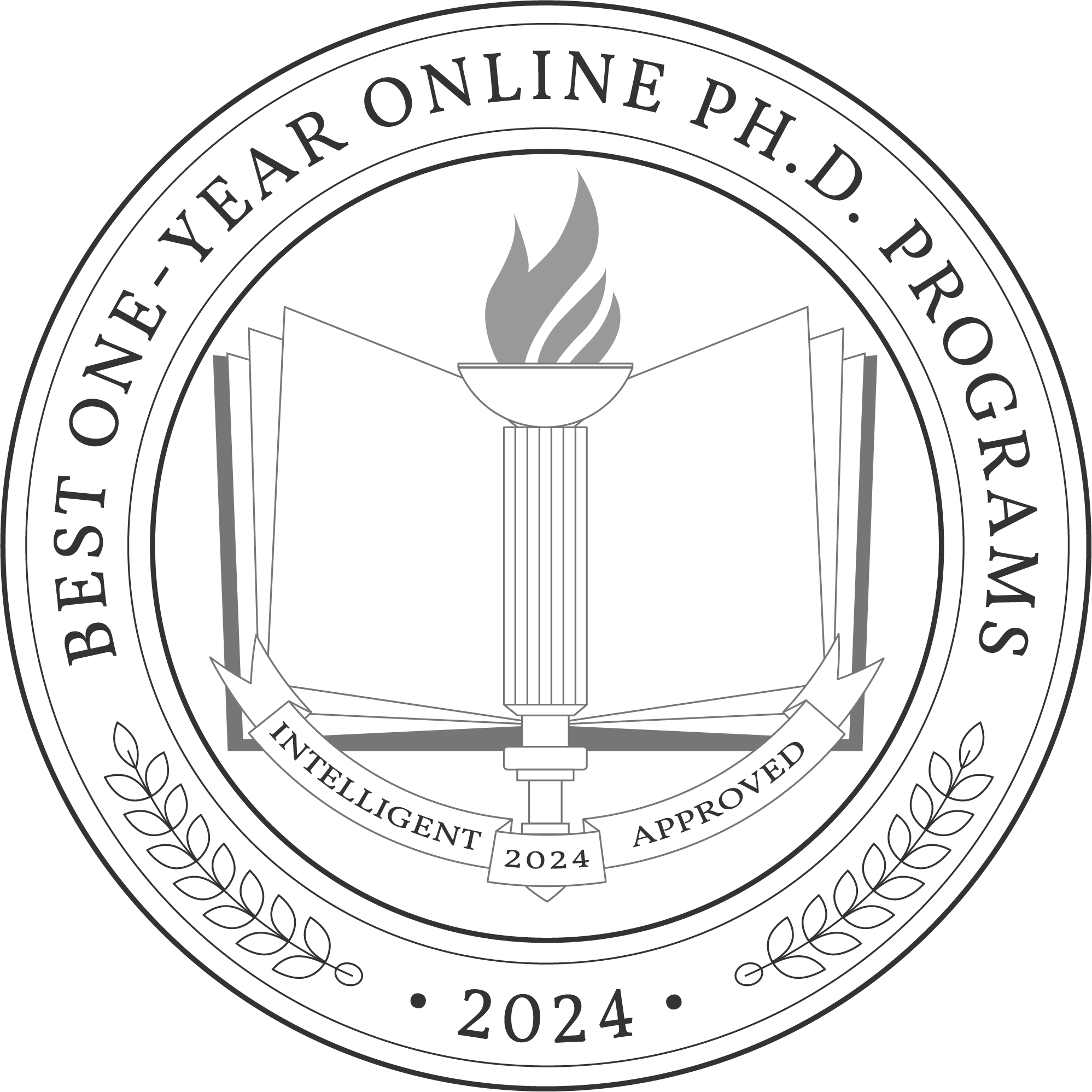
Best One-Year Online Ph.D. Programs of 2024
Written by Alex Kale , Reviewed By Blanca Villagomez
Updated: July 24, 2024
Compare School Options
Most schools have rolling admissions and financial help so you can start your degree in a few weeks!
For students looking to advance their studies and careers by earning their Ph.D. in a fraction of the time of traditional programs, exploring the best one-year online Ph.D. programs is a smart move. Graduates of these accelerated programs can pursue rewarding careers such as university professors, earning a median salary of $84,380 ; medical scientists, with a median salary of $100,890 ; nonprofit executives, earning around $103,840 , or clinical directors, with a median salary of $110,890 .
These programs, completed in just one year, save students time and money and are a significant investment in their future, providing opportunities for high-paying, fulfilling careers.
How to Choose a One-Year Online Ph.D. Program
Choose your area of study.
Your area of study for your Ph.D. should align closely with your previous graduate-level coursework. If you’re considering a significant change, a traditional Ph.D. program might be more suitable, as it’ll give you more time to complete that pivot.
For those planning ahead during undergraduate studies, take time to prepare by asking yourself:
- What areas have I excelled in academically?
- What topics am I passionate about?
- Where do I see myself in five years, specific to my career?
Reflecting on these questions can help narrow your scope and ensure that your Ph.D. aligns with your academic strengths and professional goals.
Research schools and programs
Conducting thorough research on schools and programs is especially essential for a one-year online Ph.D., as you’ll want to be sure the programs you apply to fit your needs. Consider using the following questions to guide your research:
- What is the curriculum structure and focus?
- Who are the faculty members, and what are their credentials?
- What support services are available for online learners?
- What are the total credit requirements?
- Are there opportunities for networking and professional development?
Most of this information will be readily available on university websites, but you’ll also benefit from attending a virtual open house or speaking with an admissions counselor.
Prepare for tests and applications
Preparing for your Ph.D. applications can take some time, so starting early and staying organized is essential. While some programs may have specific requirements, many require the following criteria:
- Official transcripts from previous institutions
- Letters of recommendation
- A well-crafted personal statement or statement of purpose
- A current resume or CV
- Writing samples or research proposals
For programs requiring test scores such as the GRE, consider enrolling in a test prep program to strengthen your application.
Select your program
The arrival of acceptance letters is always an exciting time, but it can quickly become overwhelming if you receive more than one. Review your initial research criteria and prioritize what matters most to you — including the curriculum, faculty, and support services. If you haven’t already done so, assess the total cost of attendance and compare this figure to any financial aid offers.
Determine how you’ll pay for your degree
Paying for any degree can be daunting, and a Ph.D. is no different. Fortunately, you can manage this efficiently through several financial aid options.
Start with scholarships and grants, which don’t require repayment. Next, explore assistantships or fellowships that offer stipends in exchange for teaching or research duties. Check if your employer offers tuition reimbursement programs, as many companies support the educational pursuits of their employees. With these resources, you may even be able to earn your Ph.D. for free .
If financial gaps remain, consider federal loans, which typically offer lower interest rates and flexible repayment options compared to private loans.
Best 50 Accredited One-Year Online Ph.D. Programs

intelligent score 98.46
#1 GetEducated
School Information
Versailles, KY
Graduation Rate: 95%
Admission Rate: 100%
Urbanicity: Suburban
School Size: Small
Delivery Format Online
Required Credits to Graduate 30
Estimated Cost per Credit $685
accreditation Accreditation Commission for Education in Nursing
more program information Email: [email protected] Phone: 859-279-0890
intelligent score 94.07
#2 GetEducated
Graduation Rate: 88%
Admission Rate: 14%
Urbanicity: City
School Size: Large
Required Credits to Graduate 33-37
Estimated Cost per Credit $895 - $2,083
accreditation New England Commission of Higher Education
more program information Email: [email protected] Phone: 617-353-2713
intelligent score 93.81
#3 GetEducated
Pittsburgh, PA
Graduation Rate: 68%
Admission Rate: 66%
Required Credits to Graduate 27-30
Estimated Cost per Credit $1,160
accreditation Commission on Collegiate Nursing Education
more program information Email: [email protected] Phone: 412-365-1825
How we rank schools
This list features some of the country’s best one-year online Ph.D. programs. Each school featured is a nonprofit, accredited institution, either public or private, with a high standard of academic quality for post-secondary institutions.
We evaluated each school’s program on tuition costs, admission, retention and graduation rates, faculty, and reputation. Then, we calculated the Intelligent Score on a scale of 0 to 100. Read more about our ranking methodology .
Next, we compared this comprehensive list of the best one-year online Ph.D. programs to a list of aggregated college rankings from reputable publications, such as U.S. News & World Report, to simplify a student’s college search. We pored through these rankings so students don’t have to.
What Can You Expect From a One-Year Online Ph.D. Program
A one-year online Ph.D. program offers an accelerated path for scholars, focusing on intensive coursework and practical applications. As a student, you can expect to delve even further into your chosen field, gaining expertise through specialized classes and research projects. Coursework typically covers advanced theories, methodologies, and contemporary issues, ensuring graduates are well-prepared for academic, professional, or research-based careers.
These programs often replace the traditional dissertation with an original research component, such as a capstone project. This allows students to illustrate their knowledge and contribute to their field without the extended timeline of a traditional dissertation.
Potential courses you’ll take in a one-year Ph.D. program
- Advanced Social Work Practice: This course delves into contemporary methods and strategies in social work, focusing on evidence-based practice, clinical interventions, and policy analysis. Participants learn to address complex social issues, improve clinical skills, and develop innovative solutions for diverse populations.
- Criminal Justice Theory and Practice: Students explore advanced theories of criminal justice, including criminology, law enforcement, and corrections. The class emphasizes the application of these theories in real-world contexts, preparing students to analyze criminal behavior and develop effective crime prevention strategies.
- Public Policy Analysis in Public Administration: In this course, students learn to assess the impact of different policies, understand the intricacies of public governance, and propose data-driven solutions to improve public service delivery. The class covers the methods and tools for analyzing and developing public policies.
- Historiography and Research Methods: This course focuses on the study of historical writing and methodology. It teaches students to critically evaluate historical sources and construct well-supported historical narratives. Learners develop high-level research skills and gain the ability to contribute original insights to the field of history.
What Can I Do With a One-Year Ph.D.?
Ph.D. graduates have many different career opportunities in diverse fields, including academia, clinical leadership, and executive roles in non-profits and businesses. This degree significantly boosts earning potential; the Bureau of Labor Statistics reports that professional degree holders earn a median weekly wage of $2,206 , substantially higher than other degree levels.
Career outlook University Professor — Specializing in various fields, university or college professors teach and conduct research, contributing to scholarly knowledge in their field. Median annual salary: $84,380 Projected employment growth (through 2032): 8% New jobs projected: 118,800 Clinical Director — In fields like social work, these professionals lead clinical practices, develop treatment programs, and oversee case management in healthcare or social service settings. Median annual salary: $110,680 Projected employment growth (through 2032): 28% New jobs projected: 54,700 Nonprofit Executive — These professionals lead non-profit organizations, manage programs, and drive initiatives to address social, environmental, or cultural issues. Median annual salary: $103,840 Projected employment growth (through 2032): 3% New jobs projected: 311,600
One-Year Online Ph.D. Degree Frequently Asked Questions
How do accelerated degree programs work.
Accelerated degree programs, like one-year Ph.D. programs, condense traditional multi-year curricula into a significantly short timeline through intensive, focused coursework and research. As a student, you’ll engage in a rigorous academic schedule, often year-round, emphasizing theoretical and practical application. These programs typically replace the lengthy dissertation process with a capstone project.
To learn more about the pros and cons of these accelerated programs and determine if they’re the right fit for you, visit our page , which explores this further.
How long does it take to earn a one-year online Ph.D. degree?
As its name suggests, a one-year online Ph.D. takes just one year to complete with full-time study. This is a significant reduction compared to traditional Ph.D. programs, which often take six years or more to finish. Be sure to carefully review the total number of required credits, as this can vary by program and may influence the actual completion timeline.
How much does a one-year online Ph.D. degree cost?
The cost of these degrees can vary significantly due to their accelerated nature, but for the 2020-2021 academic year, the average cost was $19,749 . In addition to tuition, you should also budget for other expenses such as technology fees, textbooks, and course materials. These additional costs can add up, so factoring them into your financial planning is important.
35 Shortest Doctoral Programs Online [Fastest Doctorate & PhD Degrees]

Have you ever dreamed of getting your PhD or doctorate without spending ages in school? We’ve got you covered!
We’ve compiled a list of the 35 shortest doctoral programs available online. These programs can be ideal if you are looking to fast-track your education.
Online accelerated PhD programs are growing in popularity, but they vary widely in their graduation requirements. We’ve put together this guide showcasing online doctorate programs that require less than 60 credit hours to help you find the one that meets your needs.
The US Bureau of Labor Statistics ( BLS ) reports that doctorate degree holders earn more than $19,000 a year on average than those holding a master’s degree only.
And because a doctoral degree is the highest level of academic achievement, you will also receive the accompanying scholarly respect as you make valuable contributions to your field and society as a whole.
Editorial Listing ShortCode:
Accredited Schools Offering the Shortest Doctoral Program Options
Methodology: To decide which universities to include in our guide, we looked at several criteria, including the total number of credit hours required, accreditation, programs offered, and quality of online programs. Each of these universities offers accredited, accelerated online doctoral programs.
Completion time can differ for each student, but it’s exciting to know that some accredited schools now offer doctorate degrees that require fewer than 40 credit hours to complete! This can offer more flexibility and efficiency in your educational journey.
Before you apply, it’s important to carefully review your potential program’s tuition fees, graduation criteria, and classes offered.
Boston University
Boston University offers an accelerated Doctor of Occupational Therapy program that can be completed in 18 months. The program requires 33 to 37 credits and includes courses in evidence-based practice and health care management. It is fully online, allowing flexibility for working professionals. No dissertation is required, but a doctoral project is necessary.
Boston University is accredited by the New England Commission of Higher Education.
Capella University
Capella University’s doctoral programs offered in FlexPath provide a unique, self-paced learning format that allows you to complete your degree at your own speed, potentially much faster than traditional programs.
Some programs even allow up to 24 transfer credits, further accelerating your studies. Whether pursuing a Doctor of Education or a Doctor of Business Administration, FlexPath provides the flexibility to advance your career on your terms.
Capella University is accredited by the Higher Learning Commission.
Colorado Christian University
Colorado Christian University offers an online Doctor of Nursing Practice program that can be completed in just over 2 years. The program requires 30 credit hours and includes courses in advanced nursing practice and leadership. It features a flexible online format and culminates in an evidence-based practice (EBP) project.
Colorado Christian University is accredited by the Higher Learning Commission.
Concordia University Chicago
Concordia University Chicago offers an online PhD in Exercise Science. This asynchronous program can be completed at your own pace and allows students to accelerate their studies by completing them with fewer breaks. The program requires the completion of 69 credit hours, including a dissertation. Coursework covers topics in exercise science, research, statistics, and leadership.
Concordia University Chicago is accredited by the Higher Learning Commission.
Duquesne University
Duquesne University offers an online Doctor of Nursing Practice (DNP) in Clinical Leadership program that can be completed in 2 years. This 35-credit program focuses on clinical leadership, quality improvement, and evidence-based practice. It includes three unique residency experiences and culminates in a doctoral practice project.
Duquesne University is accredited by the Middle States Commission on Higher Education.
Drexel University
Drexel University offers an online Doctor of Nursing Practice (DNP) program that can be completed in 2 years. The program requires 45 credits and includes comprehensive clinical requirements. Students must complete 1,000 post-baccalaureate clinical hours. The program also culminates in a DNP project, focusing on practical, evidence-based improvements in healthcare.
Drexel University is regionally accredited by the Middle States Commission on Higher Education.
East Carolina University
East Carolina University offers an online Doctor of Nursing Practice (DNP) program that is accredited by the Commission on Collegiate Nursing Education. It requires 36 semester hours, 1,000 clinical practice hours, and 1- to 3-day on-campus sessions at the beginning of each semester.
Coursework is focused on advanced clinical practice, leadership, and quality improvement. The program culminates in a DNP scholarly project designed to address real-world healthcare challenges.
East Carolina University is accredited by the Southern Association of Colleges and Schools Commission on Colleges.
Frontier Nursing University
Frontier Nursing University offers an online Doctor of Nursing Practice (DNP) program that can be completed in 18 months. The program requires 30 credits and 500 clinical hours. Coursework focuses on advanced practice, leadership, and evidence-based care. The program culminates in a quality improvement project, designed for practical, real-world impact.
Frontier Nursing University is accredited by the Southern Association of Colleges and Schools Commission on Colleges.
Grand Canyon University
Grand Canyon University offers two online Doctor of Nursing Practice (DNP) programs. The DNP in Advanced Practice Registered Nurse requires 39 credits and the DNP in Educational Leadership requires 48 credits.
Both programs can be completed in approximately 2.5 years and include courses in leadership, clinical practice, and evidence-based research. They both culminate in a scholarly project aimed at real-world improvements in healthcare and education.
Grand Canyon University is regionally accredited by the Higher Learning Commission.
Gwynedd Mercy University
Gwynedd Mercy University offers an accelerated, online Executive Doctorate in Educational Leadership (EdD) program that can be completed in less than 3 years.
The program requires 54 credits and includes courses in strategic leadership, organizational change, and educational policy. Personal doctoral completion support is offered from day one, ensuring guidance and resources throughout your academic journey.
Gwynedd Mercy University is accredited by the Middle States Commission on Higher Education.
Hampton University
Hampton University offers an online Doctor of Philosophy (PhD) in Nursing program that can be completed in 3 years. The program requires 48 credit hours and includes 8-week courses in nursing theory, research methods, and health policy.
Students receive personalized support throughout their studies and must complete a dissertation to contribute original research to the field of nursing.
Hampton University is accredited by the Southern Association of Colleges and Schools Commission on Colleges.
Indiana State University
Indiana State University offers an online, 37-credit-hour Doctor of Nursing Practice (Post-Master’s). Its curriculum is approved by the American Association of Colleges of Nursing and fully accredited by the Accreditation Commission for Education in Nursing, Inc.
The program aims to develop new leaders in nursing and allows students to shape their education around their interests, expertise, and goals.
Indiana State University is accredited by the Higher Learning Commission.
Indiana University of Pennsylvania
Indiana University of Pennsylvania offers an online, accelerated Doctor of Nursing Practice to PhD program. By allowing 27 credits from a DNP degree to transfer, this program can be completed in half the time as a traditional nursing PhD, requiring only 33 semester hours to complete.
Indiana University of Pennsylvania is accredited by the Middle States Commission on Higher Education.
Liberty University
Liberty University offer several doctoral degrees. Many of which can be completed 100% online and may be accelerated. Courses are primarily offered in an 8-week format with no set login times, allowing you to complete your courses at your own pace. Fields of study offered include ministry, public administration, education, nursing, and counseling.
Liberty University is accredited by the Southern Association of Colleges and Schools Commission on Colleges.
Monmouth University
Monmouth University offers a 36-credit, online Post-Master’s Doctor of Nursing Practice program that is accredited by the Commission on Collegiate Nursing Education. The curriculum focuses on the translation, application, and evaluation of new science to create nursing professionals capable of creating innovative changes in the field.
Monmouth University is accredited by the Middle States Commission on Higher Education.
National University
National University offers several online doctoral programs to fit the needs of busy schedules. The university offers 4-week, flexible online courses that can be completed at your own pace. Fields of study offered include public administration, education, criminal justice, and business administration.
National University is accredited by the Western Association of Schools and Colleges.
Nova Southeastern University
Nova Southeastern University offers several online and hybrid doctoral programs. These programs offer flexible, online courses and summer courses to help fit busy schedules and accelerate the time it takes to earn a degree.
Topics of study available include education, leadership, human services administration, nursing, organizational leadership, occupational therapy, and special education.
Nova Southeastern University is accredited by the Southern Association of Colleges and Schools Commission on Colleges.
Penn State World Campus
Pennsylvania State University offers an online Post-Master’s Doctor of Nursing Practice—Leadership through its World Campus. The program requires 38 to 46 credits that can be completed in 2 years. Most courses are offered in an asynchronous format to better fit busy schedules.
Pennsylvania State University is accredited by the Middle States Commission on Higher Education.
Regent University
Regent University offers several online doctoral degree programs. The school’s generous transfer policy and 8-week course offerings allow many programs to be completed faster. Areas of study offered include ministry, business administration, nursing, communication, leadership, education, and counseling.
Regent University is accredited by the Southern Association of Colleges and Schools Commission on Colleges.
Seton Hall University
Seton Hall University offers a Post-Master’s Doctor of Nursing Practice that requires the completion of 31 to 33 credits. The program’s courses can be completed fully online. The curriculum prepares students for advanced practice roles, such as nurse practitioners, midwives, or anesthetists, or administrative and leadership positions.
Seton Hall University is accredited by the Middle States Commission on Higher Education.
Temple University
Temple University’s Occupational Therapy Doctorate (OTD) program requires 21 credits and may be completed in up to 3 years. It is designed for licensed occupational therapists who hold a master’s degree in occupational therapy or a related field. The program offers a flexible format to help working professionals advance their careers while balancing other commitments.
Temple University is accredited by the Middle States Commission on Higher Education.
University at Buffalo
The University at Buffalo offers post-master’s, online programs for a Doctor of Nursing Practice. Each of these degrees requires the completion of 36 credit hours. Specializations offered include Child Health, Family, Psychiatric/Mental Health, and Women’s Health Nurse Practitioner, and Nurse Anesthesia.
The University at Buffalo is accredited by Middle States Commission on Higher Education.
University of Arkansas
The University of Arkansas offers a mostly online Doctor of Education in Education Leadership. The program consists of online courses with weekly synchronous meetings and three weekend seminars. It requires 42 credit hours and can be completed in 3 years. It prepares for leadership roles at a variety of education levels.
The University of Arkansas is accredited by the Higher Learning Commission.
University of Bridgeport
The University of Bridgeport’s hybrid Post-Master’s Doctor of Education in Educational Leadership program is mostly online and can be completed in 3 years. Designed for working professionals, all classes can be completed online except for two one-week doctoral summer residencies.
The University of Bridgeport is accredited by the New England Commission of Higher Education.
University of Florida
The University of Florida offers a Doctor of Nursing Practice (Post-Master’s) program that can be completed online. It requires requires the completion of 35 credits and can be completed in 5 semesters. The coursework culminates in a final project designed to help you build clinical expertise and scholarship and could lead to publication or conference presentations.
The University of Florida is accredited by the Southern Association of Colleges and Schools Commission on Colleges.
University of Michigan – Flint
The University of Michigan – Flint offers a Doctor of Nursing Practice—Executive Leadership that can be completed with 30 to 34 credits. The curriculum adheres to the standards of the Institute for Healthcare Improvement’s “Triple Aim” criteria. The program is taken online and offers 7-days-a-week support.
The University of Michigan – Flint is accredited by the Higher Learning Commission.
University of Minnesota
The University of Minnesota offers an online Post-Master’s Doctor of Nursing Practice. This program is designed for nurses with master’s degrees in a specialty who want to take the next step into an advanced role. It requires the completion of 37 to 38 credits and one four-day session each semester. The program can be completed in 1 year, including a summer semester.
The University of Minnesota is accredited by the Higher Learning Commission.
University of Missouri
The University of Missouri offers an online Doctor of Education in Educational Leadership with optional on-campus opportunities. The program requires 54 credits. Typically, students take two classes a semester and graduate in 3 years.
The University of Missouri is accredited by the Higher Learning Commission.
University of North Carolina – Greensboro
The University of North Carolina at Greensboro offers an online PhD in Economics. This program can require as little as 45 credit hours and be completed in just 3 years with equivalent core master’s courses to transfer. This customizable program allows you to select labor, health, macroeconomics, technology, entrepreneurship, public, or environmental economic focus.
The University of North Carolina at Greensboro is accredited by the Southern Association of Colleges and Schools Commission on Colleges.
University of North Dakota
The University of North Dakota offers an online Post-Master’s Doctor of Nursing Practice. The program requires 37 credit hours and can be completed in 5 semesters. The curriculum is designed for healthcare leaders, focusing on leadership in topics like nurse education, safety and ethics, organizational systems, and integrated leadership.
The University of North Dakota is accredited by the Higher Learning Commission.
University of Northern Colorado
The University of Northern Colorado offers a Doctor of Nursing Practice (Post-Master’s) for practicing MSNs and APNs. It requires 44 credits and can be completed in 2 years. The curriculum is designed to create clinical experts with a focus on leadership, advocacy, and critical thinking.
The University of Northern Colorado is accredited by the Higher Learning Commission.
University of Tennessee – Knoxville
The University of Tennessee – Knoxville offers several online doctoral programs, several of which require less than 50 credits. Topics of study available include industrial engineering, social work, and nursing. UT offers 24/7 mental health and wellness support for its online learners and synchronous and asynchronous classes to fit your scheduling needs.
The University of Tennessee – Knoxville is accredited by the Southern Association of Colleges and Schools Commission on Colleges.
University of Texas at Tyler
The University of Texas at Tyler offers a Doctor of Nursing Practice that can be completed primarily online. The curriculum consists of 39 credits and a scholarly project. The program can be completed in 3 years of part-time attendance. It focuses on evidence-based practice, systems change, leadership, and healthcare policy.
The University of Texas at Tyler is accredited by the Southern Association of Colleges and Schools Commission on Colleges.
Vanderbilt University
Vanderbilt University offers an online Ed.D. in Leadership and Learning in Organizations, requiring 54 credits, with transfer credits available for eligible students. The program can be completed in as little as 3 years, providing a rigorous yet flexible path for professionals aiming to lead in educational settings.
Vanderbilt University is accredited by the Southern Association of Colleges and Schools Commission on Colleges.
Wilmington University
Wilmington University offers several online, flexible doctoral programs. Three of these programs can be completed in 3 years or less: a Doctor of Nursing Practice, an Ed.D. in Organizational Leadership, and a Doctor of Business Administration.
Wilmington University is accredited by the Middle States Commission on Higher Education.
Popular Online Doctoral Programs
Accelerated online doctoral programs can help you finish your degree faster. These are some of the most popular fields of study in which a doctorate can be earned in an accelerated format.
- Business Administration
- Counseling & Therapy
- Criminal Justice / Homeland Security
- Healthcare Administration
- Human Services
- Information Systems / Technology
- Ministry / Theology
- Public Administration
- Public Health
- Public Policy
Below we’ve provided information about each of these fields of study. Click on the links above to shortcut to your field of interest.

Accounting Doctoral Programs
If you enjoy working with numbers and financial concepts, you may enjoy delving deep into the field with a doctorate in accounting. You can earn this degree to prepare for a position as the chief financial officer of an organization, serve as an auditor, teach accounting at the college level, or oversee a team of accountants.
Doctoral accounting programs include classes in statistical analysis, financial research methods, and accounting theories. Available concentrations include Public Accounting and Forensic Accounting.
Online Doctorate in Business Administration
A doctorate in business administration can prepare you for leadership roles and skillful operation within global markets.
With this degree, you can pursue leadership positions in a variety of fields, including for-profit companies, non-profit organizations, and government groups. You can also work in education, whether in an administrative role or as a professor.
In preparation for such positions, your coursework will cover topics like quantitative and qualitative research methods, statistics, economics, management theories, and organizational behavior.
As a more exclusive degree than an MBA, a DBA can set you apart and help you land top leadership positions. Plus, the number of courses required is typically less, making it one of the shortest doctoral options.
Counseling Doctoral Degree Programs
A doctoral degree in counseling or therapy can equip you to help others work through their mental health or interpersonal struggles, and it can prepare you for leadership roles in counseling organizations.
With this degree, you can pursue careers in social work, private practice, or program administration. You may also tailor your education with concentrations like Counselor Education and Supervision, Art Therapy, Marriage and Family Therapy, and Addiction Counseling.
Coursework often covers topics like group and individual counseling, trauma response, ethical behavior, and diversity. Some universities require that you already be licensed as a counselor in your state before beginning their programs.
A PhD in Counseling can allow you to pursue a career as a college or university educator, an advanced counselor who trains and leads others, or a primary researcher for innovative studies.
If you’re currently a counselor and training other counselors or managing a counseling program are career goals of yours, a PhD in Counseling can make those goals a reality.
Criminal Justice & Homeland Security Doctorate Degrees
With a doctorate in criminal justice or homeland security, you can pursue a career in law enforcement, government, or private practice.
Your chosen career may provide opportunities to protect your community, conduct investigations, work with criminals, or collect intelligence. Often, doctoral graduates gain leadership positions, such as serving as a chief of police.
In pursuit of this doctoral degree, you’ll take classes in psychology, emergency and disaster situations, the justice system, and victimology.
Your program may offer concentrations like Terrorism, Criminology, Information Assurance, Security, or Emergency Management.
Doctorate in Education
Whether you want to teach in a classroom, serve in school administration, provide teacher support, or equip the next generation of instructors, a doctorate in education can help you achieve your goals.
Many graduates remain in the classroom and take on leadership roles. Others become principals, superintendents, professors, policymakers, curriculum specialists, or educational consultants.
While earning this degree, you’ll take classes in curriculum development, organizational leadership, student assessment, and education research. You could select an EdD concentration in an area like Special Education, Administration, Curriculum and Instruction, or Early Childhood Education.
A PhD in Education and an EdD are quite similar degrees. Both programs focus on education and can prepare you for leadership roles. PhD programs, however, are more research-based.
A PhD can be a better match for someone looking for a career in research, publishing, or teaching at the university level. It focuses less on application than an Ed.D., but the same types of careers are possible with either of these two degrees.
In terms of time to completion, the shortest program option is usually the EdD because there’s often no dissertation required.
Doctorate in Finance
People with strong math and money skills can be good candidates for pursuing a doctoral degree in finance. Many doctoral graduates take leadership positions with investment firms, large banks, hedge funds, universities, or government agencies. Some earn CEO or other C-suite roles.
A doctorate in finance can even prepare you for an international career. As you study for your degree, you’ll take classes in market analysis, global markets, financial planning, theories of finance, taxation, and leadership.
You can also choose to prepare for leadership roles in this field by pursuing a DBA with a concentration in Finance.
Doctorate in Healthcare Administration
Earning a doctoral degree in the field of healthcare administration can prepare you for leadership positions in healthcare and medical settings. With it, you can work in hospitals, nursing homes, medical records companies, political think tanks, government agencies, or universities.
In this discipline, you’ll take classes on global health, business, law and policies, finance, and organizational leadership. Many DHA programs offer concentrations like Public Health, Leadership, and Health Policy.
An alternative academic path is earning a DBA with a concentration in Healthcare Administration, which can offer a shorter route to a doctorate when no dissertation is required.
Doctorate in Human Services
Earning a doctorate in human services can prepare you for leadership positions in organizations that provide services and assistance for various groups of people. You may work in schools, clinics, community outreach programs, or non-profit organizations.
Some people who pursue this degree are licensed counselors who want to serve in a leadership capacity in a mental health practice. Others desire teaching positions in human services at the university level.
Common topics of study for this degree include grant writing, leadership, communication, financial management, and ethics. Some of the concentration options are Mental Health, Gerontology, Marriage and Family, and Leadership and Management.
A PhD in Human Services can prepare you for leadership positions or help you become a policymaker in public and human services.
A PhD in Human Services is a flexible degree. If you have an undergraduate or master’s degree in public service, including social services, child welfare, criminal justice, or healthcare, you may find this degree interesting.
Doctorate in Information Systems / Technology
Companies and organizations rely on systems to keep their data and records safe and accessible. To be at the forefront of this field, consider a doctorate in information technology.
With this degree, you can pursue work as a C-suite executive, a director in a tech department, a consultant, a leader in a government agency, or a strategist. You could also be well-poised to open your own company.
Your classes will equip you with knowledge about data collection and analysis, threat and risk management, policy-making, strategic planning, and research.
Doctorate in Management / Leadership
If you want to hold one of the highest roles in an organization, then earning a doctoral degree in management may be in order. Some with this degree become C-suite executives, such as chief operating officers. Others take the helm of school districts or universities or accept teaching or research roles in higher education.
While earning this doctorate, you will study leadership, ethics, consulting, decision-making, innovation, and research. Many students pursue concentrations in Technology, Homeland Security, Non-Profit Organizations, or Healthcare.
Alternatively, some schools offer DBA programs with Management concentrations. This often adds more flexibility and can be the shorter option when compared to a PhD, which usually requires a dissertation.
Ministry (D.Min.) or Theology Doctorate Programs
You can take your religious education to the next level with a doctorate in ministry or theology. After earning this degree, you can choose to put your education into practice in church, parachurch, counseling, or chaplaincy positions.
Coursework for this degree typically helps students grow not only academically, but also spiritually. Topics covered include leadership, spiritual disciplines, evangelism, social justice, and teaching methods.
Some doctoral candidates pursue a specialization. Options include Counseling, Worship, Chaplaincy, Spiritual Disciplines, and Urban Ministry.
A career as a professor is a possibility with this degree, or you could become a missionary leader or lead pastor at a church.
Many universities require students to hold professional ministry positions before admitting them into their programs.
Doctorate in Nursing (Doctor of Nursing Practice)
The top-educated nurses have their doctoral degrees in nursing practice. With this degree, you can continue offering direct patient care. For example, you might work as a specialty nurse in a clinic. You could also use your degree as a care coordinator, manager of a nursing team, policymaker, or nurse educator.
For RNs (Registered Nurses) who want to teach and train other nurses in academic settings, a PhD in Nursing is the best doctorate-level nursing degree to pursue. A PhD in Nursing can also prepare you for a career in research as a nursing scientist.
Coursework for this degree includes classes on information technology, finance, organizational leadership, safety, and healthcare law. Keep in mind that a doctoral degree in nursing is a terminal degree in the field and will not qualify you for a position as a physician.
DNP programs have gained a lot of popularity over the years and are designed for RNs who seek advancement while remaining practicing nurses.
Earning a DNP can prepare you for leadership careers in the nursing industry. It will teach you how to advocate for and make policies, manage and direct nursing programs, and ensure communities offer the best healthcare to citizens who need it the most.
Doctorate in Public Administration
Whether you want to work in a government agency or would prefer a position with a related organization, a doctorate in public administration can help you achieve your goals.
People with this doctoral degree often serve as politicians, lobbyists, non-profit directors, grant writers, administrators, or government affairs directors. If you want to go into government or politics, you could work at the local, state, or national level.
In this field, you’ll study human resources, public policy, budgeting, ethics, organizational leadership, and decision-making.
PhD in Public Health
With a doctoral degree in public health, you could choose to conduct research in the fields of epidemiology, environmental science, clinical trials, or academia.
Instead, you could choose to pursue leadership roles in public health as a safety engineer, a clinic manager, or an executive of a hospital system.
Classes for this degree cover health equity, data analysis, biostatistics, and healthcare policy. Concentrations are available at many universities. Common options include Health Education, Leadership, and Laboratory Science.
PhD in Public Policy
If you want to have a hand in creating or modifying the policies that shape people’s lives and communities, then a doctoral program in public policy can provide the education that you need. Graduates often work for government agencies, universities, think tanks, and various institutions.
While earning this degree, you’ll study ethics, decision-making, research, leadership, and cultural diversity. You’ll also practice identifying problems, gathering valuable data, and creating effective solutions.
You may focus on Urban Policy, Health Policy, Financial Management, or other areas of specialization.
Ph.D. in Psychology
A doctoral degree in psychology can help you understand how people think and the influence that thought has on behavior. Many people pursue this degree because they want to work as licensed clinical psychologists in schools, private practices, hospitals, or organizational settings.
Coursework for this degree covers counseling theories, psychopathology, culture, motivation and behavior, and cognition.
Programs leading to licensure typically require a lengthy supervised practicum.
What is the Difference Between a PhD and a Doctorate?
A PhD, or Doctor of Philosophy, is just one type of doctorate, of which there are many.
Common doctorate degrees include:
- Doctor of Philosophy (Ph.D.)
- Doctor of Business Administration (DBA)
- Doctor of Education (EdD)
- Doctor of Psychology (PsyD)
- Doctor of Social Work (DSW)
Although the PhD is just one type of doctorate, it does have one distinguishing feature: the dissertation requirement. Nearly every PhD program requires adding to your field’s body of knowledge by performing original research on an approved topic of interest.
So, if you’re looking for fast-track doctoral programs, professional doctorates are generally a better choice.
How Long Does It Take to Get a Doctorate?
The length of time it takes to complete your doctorate will depend on the university and the type of doctoral program you attend.
On average, it takes 3 to 5 years to earn a doctorate.
The answers to the following questions can significantly impact completion time:
- Does the doctorate require a dissertation?
- How many classes can you take at one time?
- Are you transferring any credits into the program?
- How many weeks long are your classes?
- Is there a residency requirement?
- Is there a professional internship requirement?
As you can see, the best answer we can give you is: it depends.
To give you a ballpark, if you are working toward a professional doctorate (DBA, EdD, PsyD, etc.) and there is no dissertation requirement, you should be able to complete your program in about 2 to 3 years. Some people may be able to complete it in less time, and some may take longer. This is simply an average.
The dissertation requirement of Ph.D. programs can significantly impact your completion time. Generally speaking, it takes most doctoral students 3 to 5 years to complete a Ph.D.
What’s the Quickest Way to Earn a Doctorate Degree?
Just like accelerated online master’s programs , the shortest path to a doctorate will vary depending on your background, the program selected, and the university’s requirements.
The time it takes to complete a doctoral program online varies widely by university. For some universities, 3-year PhD programs are the norm. The official timeline on most university websites is about 3 – 5 years to complete a doctoral degree, but that’s just a general guideline.
If you are looking for the shortest PhD programs, you’ll want to select a program that does not require a dissertation. Dissertations are notorious for taking 2+ years to complete beyond the actual course requirements.
The following doctoral programs do not always require a dissertation: EdD, PsyD, DBA, DPA, and similar professional degrees. Most PhD programs require a dissertation (which means they’ll take longer to complete).
Another way to speed up your degree is by enrolling at a university that offers accelerated (8-week) doctoral courses. Since the courses take half the time to complete, you can finish your studies in less time.
Finally, you’ll want to pick a program that requires fewer credit hours. For example, one university may require 64 credit hours for an EdD while another may only require 42 credits. When looking for the shortest doctorate programs, you’ll want to examine the credit hour requirements closely.
This is also a great way to find the cheapest online doctoral programs. Generally, you’ll pay less tuition if you don’t need as many credit hours for program completion.
Are There Any One-Year Online Doctoral Programs?
When exploring the fastest route to a doctorate, it’s important to understand the available options and their typical timelines.
While some fast track schools offer the possibility of finishing a professional doctorate in 12 to 18 months, most accredited universities generally promote their doctorate programs as taking 3 or more years to complete.
These are some things to consider when looking for a faster doctoral program:
- Standard PhD duration : The usual time frame for completing a PhD is about 3 to 5 years. Occasionally, you might come across a 2-year PhD program, but these programs are quite rare.
- Other career-focused doctorates
- Select an online program with fewer credit hours required.
- Enroll in accelerated online courses , often structured as 8-week classes.
- Consider no-dissertation programs
- Look for programs that don’t require a GRE for admission.
- Capstone project as an alternative : Consider programs requiring a capstone project instead of a traditional dissertation. Capstone projects require research but generally take less time to complete than dissertations.
So, while 1-year online doctorate programs are not commonly available, especially from accredited institutions, these strategies can help you find a doctorate program that can be completed in a significantly shorter time.
Do All PhD Programs Require Students to Complete a Dissertation?
PhD programs usually require dissertations, but professional doctorates, such as a Doctor of Business Administration or Doctor of Education, generally do not require dissertations. Instead, they typically require capstone projects.
What Is the Fastest PhD Program Available?
The fastest PhDs available will be those that require 30 credit hours or less to complete. Once you’ve selected the fastest online degree that requires fewer credit hours than the norm, try to narrow your list further by selecting a university with accelerated PhD classes, which generally only take 8 weeks to complete.
If a PhD is not absolutely necessary, you will likely find it easier to find a professional doctorate program that meets these criteria, and it will likely not require a dissertation.
Having to fulfill a dissertation requirement can significantly increase the time it takes to complete your degree.
If speed is the most important factor, then a professional or applied doctorate, such as an online Doctor of Business Administration, Doctor of Psychology, or Doctorate of Education, will likely be the fastest option.
Looking for the Fastest Doctorate Programs?
When looking for the fastest doctorate degrees available, the first thing to consider is how much you’re willing to compromise in the name of speed.
Yes, there are accredited online doctoral programs that can be completed in less time than traditional, campus-based programs. The key is finding the shortest doctoral program offering the exact studies you seek.
In your search for efficiency, focusing on programs with short completion times and fewer course requirements can be a strategic choice.
Choosing a fast-track online doctorate program with minimal required courses, accelerated online classes, and no dissertation requirements can be a smart move toward efficiently achieving your academic goals. We invite you to start exploring accredited programs today with our program finder below.
Turn Your Dreams Into Reality
Take our quiz and we'll do the homework for you! Compare your school matches and apply to your top choice today.

- The PhD Journey - Stages of a Doctoral Degree
How to Get a PhD: The PhD Journey
Written by Mark Bennett
A PhD typically involves between three and four years of full-time study, culminating in a thesis which makes an original contribution to your field.
The process of getting a PhD is made up of quite a few components and milestones, from the literature review and writing up your dissertation right through to the viva examination at the end.
This section is a guide on how to get a PhD, providing in-depth advice and information on some of the main challenges and opportunities you’ll meet along the way!.
Get funding updates straight to your inbox
Sign up to our weekly newsletter for the latest funding advice and guidance from our team of experts.
7 stages of the PhD journey
A PhD has a few landmark milestones along the way. The three to four years you'll spend doing a PhD can be divided into these seven stages.
- Preparing a research proposal
- Carrying out a literature review
- Conducting research and collecting results
- Completing the MPhil to PhD upgrade
- Participating in PhD teaching, conferences and publications
- Writing your thesis
- Defending your PhD results at a viva voce
We've expanded on what you can expect from each stage below. Here's how your journey to getting a PhD will look:
1. Preparing a research proposal
Strictly speaking, your research proposal isn’t part of your PhD. Instead it’s normally part of the PhD application process.
The research proposal sets out the aims and objectives for your PhD: the original topic you plan to study and / or the questions you’ll set out to answer.
It also explains why your work is worthwhile and why it fits with the expertise and objectives of your university.
Finally, a PhD proposal explains how you plan to go about completing your doctorate. This involves identifying the existing scholarship your work will be in dialogue with and the methods you plan to use in your research.
All of this means that, even though the proposal precedes the PhD itself, it plays a vital role in shaping your project and signposting the work you’ll be doing over the next three or more years.
2. Carrying out a literature review
The literature review is normally the first thing you’ll tackle after beginning your PhD and having an initial meeting with your supervisor.
It’s a thorough survey of work in your field (the current scholarly ‘literature’) that relates to your project or to related topics.
Your supervisor will offer some advice and direction, after which you’ll identify, examine and evaluate existing data and scholarship.
In most cases the literature review will actually form part of your final PhD dissertation – usually setting up the context for the project, before you begin to explain and demonstrate your own thesis.
Sometimes a literature review can also be evaluated as part of your MPhil upgrade .
Research vs scholarship
Research and scholarship are both important parts of a PhD. But they aren't the same thing - and it's helpful to know the difference. Research is the original work you produce with your thesis. Scholarship is the expert understanding of your subject area that enables you to conduct valuable research.
3. Conducting research and collecting results
Once you’ve carried out your literature review, you’ll move from scholarship to research .
This doesn’t mean you’ll never read another academic article or consult someone else’s data again. Far from it. You’ll stay up to date with any new developments in your field and incorporate these into your literature review as necessary.
But, from here on in, your primary focus in your PhD process is going to be investigating your own research question. This means carrying out organised research and producing results upon which to base your conclusions.
Types of PhD research
The research process and the type of results you collect will depend upon your subject area:
- In Science, Technology, Engineering and Mathematics (STEM) subjects you’ll focus on designing experiments, before recording and analysing their outcomes. This often means assembling and managing complex numerical datasets – sometimes in collaboration with the rest of your laboratory or workshop.
- In Social Science subjects you’ll be more focussed on designing surveys or conducting case studies. These will produce quantitative or qualitative data, depending on the nature of your work.
- In Arts and Humanities subjects you’ll often have less raw data, but that doesn’t mean you won’t be working with ‘hard’ factual information. You’ll analyse texts, sources and other materials according to an accepted methodology and reflect upon the significance of your findings.
Whatever subject you’re in, this research work will account for the greater part of your PhD results. You’ll have regular meetings with your supervisor, but the day-to-day management of your project and its progress will be your own responsibility.
In some fields it’s common to begin writing up your findings as you collect them, developing your thesis and completing the accompanying dissertation chapter-by-chapter. In other cases you’ll wait until you have a full dataset before reviewing and recording your conclusions.
4. Completing an MPhil to PhD upgrade
At UK universities it’s common to register new PhD students for an MPhil before ‘ upgrading ’ them to ‘full’ doctoral candidates. This usually takes place after one year of full-time study (or its part-time equivalent).
Forcing you to register for a ‘lesser’ degree may seem strange, but it’s actually an important part of the training and development a PhD offers:
- As an MPhil student you’re able to comprehend your field and produce new research.
- As a PhD student you’re able to go that crucial step further and produce the significant original contribution to knowledge that defines a doctorate.
The MPhil upgrade is when you take the step from the former to the latter.
The MPhil upgrade exam
Upgrading from MPhil to PhD registration usually involves a form of oral exam – similar to the viva voce that concludes a PhD. But, unlike a full viva, the MPhil upgrade is less formal and only covers part of your thesis.
In most cases you’ll submit a small amount of the material you’ve produced so far. This could be a draft of your first chapter (or part of it) and / or your literature review. You could also be asked to reflect on your progress in general.
You’ll then sit down with your supervisor and someone else from your department (familiar with your field, but unrelated to your project). They’ll offer feedback on the quality of your work and ask questions about your findings.
The aim of the process won’t be to examine your drafts so much as to confirm that your project has the potential to justify a PhD – and that you’re on track to complete it on time.
‘Failing’ a PhD upgrade is actually quite rare. Your university may ask you to repeat the procedure if they are concerned that you haven’t made sufficient progress or established a viable plan for the rest of your project.
What is an MPhil?
The MPhil (Master of Philosophy) is also a research degree, but its scope is more limited than a PhD (Doctor of Philosophy). And no, just like a PhD, an MPhil isn’t necessarily a Philosophy qualification. Our guide covers all you need to know about the difference between a MPhil and PhD .
5. PhD teaching, conferences and publications
During the PhD process, you’ll have lots of opportunities to take part in extra-curricular activities, such as teaching, academic conferences and publications.
Although it isn’t usually compulsory to participate in these, they can be an incredibly rewarding experience and will look great on your CV.
Teaching during a PhD normally involves hosting undergraduate seminars or supervising students in the lab, as well as marking work and providing feedback.
Academic conferences are an excellent way to network with like-minded colleagues and find out the latest developments in your field. You might even be able to present your own work to your peers at one of these events.
Publishing during a PhD will help you increase your academic profile, as well as give you experience of the peer review process. It’s not normally a requisite of your PhD, but publications will certainly help if you plan on applying for postdoc positions.
6. Writing your thesis
As the culmination of three or more years of hard work, the thesis (or dissertation) is the most important part of the procedure to get your PhD, presenting you with the opportunity to make an original scholarly contribution to your discipline.
Our guide to writing your thesis covers everything you need to know about this lengthy research project, from structure and word count to writing up and submission.
We’ve also written a guide to the PhD dissertation abstract , which is an important part of any thesis.
7. Defending your PhD results at a viva voce
Unlike other degrees, a PhD isn’t normally marked as a piece of written work. Instead your dissertation will be submitted for an oral examination known as a viva voce (Latin for ‘living voice’).
This is a formal procedure, during which you ‘defend’ your thesis in front of appointed examiners, each of whom will have read your dissertation thoroughly in advance.
Examiners at a viva voce
A PhD is normally examined by two academic experts:
- One will be an internal examiner, usually appointed from elsewhere in your faculty and department. They won’t be directly associated with your project, but will have sufficient expertise to assess your findings.
- The other will be an external examiner. They will be a recognised expert in the area you are researching, with a record of relevant research and publication. Most universities in the UK allow you to invite an external examiner of your choice, provided there is no existing conflict of interest.
Your supervisor will help you prepare for the viva and will offer advice on choosing an external examiner. However, they will not normally be present during the examination.
The PhD timeline
| Meet with your and discuss your proposed project. Here you will clarify any changes that are needed and agree a schedule of meetings and a plan of work for the following months. | |
| Clarify the direction of your research, methods and the necessity of any research trips. You will also discuss your training and development needs and begin working towards a . | |
| Hand in of an advanced , thesis plan and timetable for completion. This will then be discussed in the with two internal examiners. | |
| Biannual review with your supervisor(s) to discuss your progress to date and feasibility of completing on time. | |
| You will have made considerable progress on your research by the end of the second year. You may have begun drafting your and engaging in professional activities such as , , and skills training. All of your progress will be discussed in another annual review. | |
| Most of the third year will be spent writing up and redrafting your . You may also engage in professional activities such as , and . | |
| Application for examination and nominate your examiners. | |
| and assisting work such as a skills development log. | |
| Usually the will take place within 10 weeks of the examiners receiving your thesis. | |
| Most PhD students pass with corrections and are given a period to edit the thesis. The length of time given will depend on whether you pass with major or minor corrections. | |
| Receipt of award and graduation! |
Ready to take the next step?
There's lots more information about how to get a PhD in our advice section . Or, if you're ready to start looking at different projects, why not check out one of the thousands of current PhD opportunities in our database?
Mark Bennett
Mark joined FindAPhD to develop our first ever advice articles in 2013 and now serves as our Director of Audience & Editorial, making sure our websites and information are as useful as possible for people thinking about Masters and PhD study. He has a PhD in English Literature from the University of Sheffield, as well as Bachelors and Masters degrees from the University of Kent and the University of South Wales.

Not sure how PhD study will differ from a Masters? In this guide, we take a look at how the two qualifications compare, including applications, course structure, assessment and more.

Every student will need to write an abstract for their PhD dissertation. Here's everything you need to know about what an academic abstract is and how to write one.

What can you expect from a PhD? What's life actually like as a postgraduate student? Read our guides to the doctoral research experience.

The viva voce is the final oral exam at the end of a PhD degree. Our guide explains the usual viva format, covers common questions and explains how to prepare.
FindAPhD. Copyright 2005-2024 All rights reserved.
Unknown ( change )
Have you got time to answer some quick questions about PhD study?
Select your nearest city
You haven’t completed your profile yet. To get the most out of FindAPhD, finish your profile and receive these benefits:
- Monthly chance to win one of ten £10 Amazon vouchers ; winners will be notified every month.*
- The latest PhD projects delivered straight to your inbox
- Access to our £6,000 scholarship competition
- Weekly newsletter with funding opportunities, research proposal tips and much more
- Early access to our physical and virtual postgraduate study fairs
Or begin browsing FindAPhD.com
or begin browsing FindAPhD.com
*Offer only available for the duration of your active subscription, and subject to change. You MUST claim your prize within 72 hours, if not we will redraw.

Create your account
Looking to list your PhD opportunities? Log in here .
Stack Exchange Network
Stack Exchange network consists of 183 Q&A communities including Stack Overflow , the largest, most trusted online community for developers to learn, share their knowledge, and build their careers.
Q&A for work
Connect and share knowledge within a single location that is structured and easy to search.

Which is more impressive -- finishing a PhD in 2.5 years or getting more research done?
I am working on a PhD in chemical engineering, and my advisor mentioned to me today that I'm on track to finish in about half a year. I only have one class left to fulfill the course requirements and I have a few papers published, with a couple more almost finished.
Personally, I'm in no hurry. I love grad school and working on research. However, from the perspective of a getting a good job, would a PhD at 23-24 years of age or additional research publications in high quality journals look better? Once I graduate I plan on either doing research in industry or working at a startup. I don't plan on going into academia.
- 2 Since you asked the question, surely you must have at least one or two reasons why you personally think that finishing your Ph.D. at 23-24 years of age would help you get a better job. Care to elaborate on what those are? – Mad Jack Commented May 8, 2014 at 1:49
- 12 Contrary to the answers provided here, I don't think anyone in the Industry really cares how old you are. They don't care if you are 23 or 28 when starting your first real job - Why should it? They care that you are able to do your job well and age is not a factor in that - experience, on the other hand, is. Research experiences might not help you there, but I doubt that anyone will care how old exactly you are. – dirkk Commented May 8, 2014 at 9:09
- 3 Europe/US/other? 2.5 years in some countries can be short but normal (e.g. Germany) in others - extremely short (e.g. US). – Piotr Migdal Commented May 8, 2014 at 11:45
- 5 @dirkk, for women in industry it matters quite a lot whether you are 23 or 28... Not only for the first job. – Antiohia Commented May 8, 2014 at 15:58
- 6 @dirkk "does X matter" and "should X matter" are orthogonal, weakly related questions, especially in matters such as this - a strong positive answer to one is no evidence whatsoever for the other question, and it's misleading to mix them up. – Peteris Commented May 8, 2014 at 18:23
5 Answers 5
In my field (computer science, broadly), my impression is as follows. It is of course an over-generalization.
If you want to go into academia or industrial research, then what you do during your Ph.D. matters much much more than how long you took, though if you take more than 6 years to finish it starts to look bad.
On the other hand, if you want to go into non-academic industry, you might impress people with a fast Ph.D. because you'd show yourself to be the sort of person who can finish big things fast.
If you're only 2.5 years in, unless you have an offer from someplace and need to finish ASAP, and especially if you're enjoying your Ph.D., I wouldn't rush to graduate that quickly.
My overall impression is that prodigies and Wunderkinder are not all that eagerly sought after in industry—particularly in fields associated with chemical engineering (my discipline). Twenty-three or twenty-four, however, is not too young, but it's probably right on the cusp.
However, if your work has reached the point of maturity, and you and your advisor feel that there isn't much for you to gain by remaining in graduate school longer, then it's time to move on and find a job. Of course, in the current economic climate, job searches can last many months, so even if you were ready to defend in six months, you might not have anywhere to go to afterward! (Unless, of course, you start your job search now, which may delay the time it takes you to finish, and so on.)
One final possibility that does cross my mind is the possibility that the funding being used to support your work is running out, and there isn't a follow-up source available—hence the notion of being able to finish soon being introduced.
Another (similar) opinion from the computer science field:
- If you want to continue with research, then it doesn't matter whether you have done your PhD in 2 or in 5 years. If you have still interesting things to do on your topic, why not doing them? However, think about your motivation. Now you have the goal to finish your PhD. After an year you will no longer have a goal and continue researching. Will it still be interesting for you?
- If you want to go in the industry (especially in startup), then you really don't need to do more research. In some cases it is even seen bad when you have done research, as this is quite different from the kind of (simple, imperfect, fast) work that is mostly needed in industry.
I would take my decision depending on my interests and not depending on what looks good. Both alternatives look fine, it is much more important whether continuing research on the topic is interesting enough for you or you want to have it behind you.
- 1 I think in research there is a huge lack of people. Essentially, each researcher is the whole programming team available to any task, because every other colleague of course wants to follow their own PhD projects and cannot invest any time in contributing to someone else's development work. (Of course, some projects are done by several people at a time, but then, the effort required to do them grows proportionally, leading to the same situation.) The only people who might be available to do some of the tasks are students, but they are hardly experienced with development, nor is there any ... – O. R. Mapper Commented May 8, 2014 at 15:06
- 1 ... safety for planning ahead, as students could be gone from one day to the other. So, I can absolutely recognize the statement "So, it is quite often that you have to work a lot, to work fast, to work with people that have no idea what is to be done or how to do it." to be true for research. Certainly, test programmes are necessary. They are what I was referring to by mentioning the "practical" part of research. They are usually extremely prototypical, as they have to work just for the tasks presented in a user study and nothing else. Their overall functionality tends to be very limited, ... – O. R. Mapper Commented May 8, 2014 at 15:09
- 1 ... just comprising of the very exemplary functions required for the user study tasks, and the same can be said about the example data processed by the test program. As opposed to the industry where (presumeably?) at some point a marketable product has to be created beyond the prototype, development in research stops once a half-baked prototype is running in the limited extent that is required in the user study or demonstration. There is simply no time to do anything beyond that, let alone any people willing or able to spend any additional resources on further development. – O. R. Mapper Commented May 8, 2014 at 15:11
- 1 True, where I am, there too are as many people as there is money for. But each of them works on their own projects, so there is still only (at most!) a single person available for each project - way too little workforce to do anything properly. Of course, I do not dispute that in research, people can often choose what they want to do, and that this is different in the industry. I would just argue that exactly because people in research can pick what they do, many of the "practical" aspects of their work are done in an extremely simple, imperfect and fast fashion, simply because no-one ... – O. R. Mapper Commented May 8, 2014 at 15:49
- 1 ... asked them for e.g. a particular program, and because no-one will ever use the program without their direct influence. Even if test users conclude that the program crashes constantly, that doesn't matter because the goal is not selling anything, or developing anything that can be sold later on. – O. R. Mapper Commented May 8, 2014 at 15:50
Ask yourself what your PhD will mean in your career. For some people, it's simply a "certificate of competence" - it shows they are a good researcher, they can think independently, create original thought, test hypotheses, write coherently...
For others, it is a sign that they have mastered a specific field.
If you fall in the first category, then by all means finish and move on. I work "in industry" and have hired a number of people like this. The first thing I tell them is "your PhD is a license to learn". Once that message sinks in, they realize that our particular field has so much more to learn, and they can become quite effective.
If you fall in the second category, then ask yourself if your current environment is the place to continue honing your specific skills. If it is, and you are enjoying yourself - stick around. Finish your PhD and stay on as a post-doc, maybe. It's not wrong to finish fast; it depends on who you are, and who you want to become.
Either way - you are in the enviable position of having choices. Make sure you realize how lucky you are.
If you don't want to stay in academia and want to further your career as much as possible, get the PhD as fast as possible and start working. No one will care about how many years you spent in grad school and they also won't care very much about your number of publications. They will care about work experience which is what you would be building over the next few years.
If you really enjoy grad school, don't mind missing about on money and want to spend a lot more time learning, then you may want to stay.
You must log in to answer this question.
Not the answer you're looking for browse other questions tagged phd ..
- Featured on Meta
- Site maintenance - Mon, Sept 16 2024, 21:00 UTC to Tue, Sept 17 2024, 2:00...
- User activation: Learnings and opportunities
- Join Stack Overflow’s CEO and me for the first Stack IRL Community Event in...
Hot Network Questions
- Was Willy Wonka correct when he accused Charlie of stealing Fizzy Lifting Drinks?
- What unintended side effects may arise from making bards count as both arcane and divine spellcasters?
- Is it true that before European modernity, there were no "nations"?
- Equation of Time (derivation Analemma)
- If Act A repeals another Act B, and Act A is repealed, what happens to the Act B?
- Why is steaming food faster than boiling it?
- Is it feasible to create an online platform to effectively teach college-level math (abstract algebra, real analysis, etc.)?
- Can landlords require HVAC maintenance in New Mexico?
- Keyboard shortcuts for running last command with changes?
- What factors cause differences between dried herb/spice brands?
- The meaning of an implication in an existential quantifier
- Why does Sfas Emes start his commentary on Parshat Noach by saying he doesn't know it? Is the translation faulty?
- mmrm R package : No optimizer led to a successful model fit
- Mounting network afp volume from command line
- Differentiability in piecewise functions
- Subject verb agreement - I as well as he is/am the culprit
- For a bike with "Forged alloy crank with 44T compact disc chainring", can the chainring be removed?
- Copyright Fair Use: Is using the phrase "Courtesy of" legally acceptable when no permission has been given?
- Is it defamatory to publish nonsense under somebody else's name?
- How many engineers/scientists believed that human flight was imminent as of the late 19th/early 20th century?
- How can I analyze the anatomy of a humanoid species to create sounds for their language?
- Function with memories of its past life
- Longtable goes beyond the right margin and footnote does not fit under the table
- Why was Esther included in the canon?
An official website of the United States government
The .gov means it’s official. Federal government websites often end in .gov or .mil. Before sharing sensitive information, make sure you’re on a federal government site.
The site is secure. The https:// ensures that you are connecting to the official website and that any information you provide is encrypted and transmitted securely.
- Publications
- Account settings
Preview improvements coming to the PMC website in October 2024. Learn More or Try it out now .
- Advanced Search
- Journal List
- PLoS Comput Biol
- v.10(12); 2014 Dec

Ten Simple Rules for Finishing Your PhD
Jacopo marino.
1 Department of Chemistry, University of Zurich, Zurich, Switzerland
Melanie I. Stefan
2 Department of Neurobiology, Harvard Medical School, Boston, Massachusetts, United States of America
Sarah Blackford
3 Society for Experimental Biology (SEB), Lancaster University, Lancaster, United Kingdom
Introduction
After years of research and with completion in sight, the final year of the PhD often represents the most challenging time of a student's career, in which the ultimate reward is the PhD honor itself. A large investment in time, energy, and motivation is needed, with many tasks to be completed; concluding experiments must be carried out, results interpreted, and a research story mapped out in preparation for writing the final thesis. All the while, administrative obligations need attention (e.g., university credits and mandatory documents), papers may need to be published, students mentored, and due consideration paid to planning for the next career move. Without some form of strategic action plan and the employment of project management skills, students run the risk of becoming overwhelmed and run down or of not meeting their final deadlines. Personal time management and stress resilience are competences that can be developed and honed during this final period of the PhD.
Here, we present ten simple rules on how to deal with time issues and conflict situations when facing the last year of a PhD in science. The rules focus on defining research goals in advance and designing a plan of action. Moreover, we discuss the importance of managing relationships with supervisors and colleagues, as well as early career planning.
Rule 1: Plan Your Last Year in Advance
Preparing a plan of action for the final year of your PhD is vital. Ideally, devised and agreed upon with your supervisor, a plan will help to optimize the time left and reduce feelings of being overwhelmed. Individuals plan in different ways; some prefer to work towards their goals in a stepwise linear fashion, whilst others are more comfortable flitting from task to task until all the jobs are done. There is no definitive way to plan, so find out what works best for you. You may decide to map out a timeline, or perhaps a mind-map is your preferred planning style. Whichever method you use, it's important that you adhere to your plan whilst allowing for some flexibility (but not distraction or procrastination).
Your time frame will vary according to the organization of your graduate school, your supervisor or advisory committee, and even your graduation date, but one year before submission of your doctoral thesis is the time when you should decide on how best to invest the last months of your research and associated activities. Having a plan of action will help to avoid time wasting, e.g., being distracted by superfluous experiments that might be interesting but are not necessary. Furthermore, from a psychological point of view, referring to a concrete plan can make you feel more secure and in control. Ideally, the supervisor and PhD student should both agree on the overall plan (with provision for the unexpected, e.g., technical issues), with intermittent reviews every few weeks to check that progress is being made. Your supervisor should also be able to advise you on the organization and writing of your thesis—for example, its structure—and the number and length of chapters to include.
Rule 2: Make Your Priorities Clear
Select the activities you want to include in your plan. What are your priorities? They are likely to include experiments that will give the thesis a conclusion or that may be necessary to publish a final paper. Mandatory administrative tasks will also need attention, and allowing time to prepare for your next career move will give you the best chance of a seamless and successful transition post-PhD. As a final year PhD candidate, you are likely to have acquired high-level competencies comparable to those of a junior postdoctoral researcher, in which case your supervisor may offer you responsibility for new projects or graduate students. Saying no to him/her can be difficult for various reasons, e.g., fear of potentially creating conflict in your relationship or causing a negative reaction or of perhaps losing the opportunity to be included in future research activities and publications. It can also be difficult to let go of a topic or project to which you are wedded or to miss out on the opportunity to help train the next generation of scientists. In such situations, referring back to your plan (Rule 1), previously agreed upon with your supervisor, should help to remind you both of your priorities and deadlines, making negotiation easier. However, should any conflict of opinion arise between you, bear in mind that finding a mutually agreeable solution is the best way forward. You can take advice from a mentor or refer to the many publications that provide approaches and tactics for effective negotiation. If the relationship between you and your supervisor is more complicated and cannot be resolved by a discussion, you may need to turn to your graduate school, your academic committee, or other senior managers in your institution, who can act to mediate the situation.
Rule 3: “The Truth Can Wait”
A research project is never really finished, so do not try to do everything before submitting. In fact, the perfect doctoral thesis does not exist; there are students with good research projects and many publications and others with more difficult and testing challenges who are still waiting for their first paper. If the project is ambitious, it might take several years to reach the final goal, and thus the thesis might only be a small part of the whole story. If the project is going well, it will open up new research questions and future directions, some of which will be beyond the scope of a PhD. At some point, you need to decide that what you have is enough for a PhD and start writing (a strategy we heard described at a dissertation-writing seminar in Cambridge as “the truth can wait”; it helps to write this on a post-it note and stick it on your computer!). Starting to write the thesis is not easy when there is a sense that more could be done to accumulate more data and a fuller story; a common mistake is to go back to the lab instead of getting started with the results chapters of the thesis. To postpone writing will cause delays and not necessarily improve the thesis whilst increasing the prospect of unfulfilled and extended deadlines. Thus, once the experiments that you have agreed on have been completed, it is really important to start writing with the data in hand.
Rule 4: Enlist Support
Finalizing experiments and writing the thesis (and even papers), as well as considering your next career transition, can be stressful and even isolating. It is a contrast to the relatively more relaxed earlier years of the PhD experience, and the writing process does not come naturally to everyone. The prospect of facing these stresses alone can make the experience even harder to bear, so it is advisable to communicate with and find support in those you trust and respect. Relying on such people during this period can help to ease the strain and enable you to achieve your final aims so that you arrive at your PhD graduation with your sanity still intact! Talking about personal feelings with selected colleagues usually helps you to realize that you are not alone, whatever difficulties and challenges you might be experiencing with your research project, supervisor, or coworkers. Sharing uncertainties and talking through issues can be constructive, helping you to understand the strategies other people use to cope with similar problems. As well as colleagues, it can also help to talk to friends and family, even though they won't be as au fait with the highly particular challenges you are experiencing. You can share your feelings and anxieties with them, but they can also act as a welcome distraction to help you to relax and take a break from thinking about the stresses of your PhD.
Support and advice can also come in the shape of courses, books, blogs, mentoring, etc. There is much published on the subject of how to write a thesis [1] . Furthermore, graduate schools, such as those in which we are based, usually offer courses to help PhD candidates improve their personal and professional skills. For example, the University of Zurich organizes courses on, amongst others, time and self-management skills, managing conflict, and academic writing and publishing [2] . The Graduate School of Arts and Sciences at Harvard lists workshops and resources offered across the university on topics such as scientific writing, time management, and overcoming procrastination. In addition to relying on your supervisor, postdoctoral researchers in your group or department (or even friendly collaborators) may agree to read chapters of your thesis and comment on aspects such as content, logical flow of ideas, and the overall structure. At a later stage, you may want to engage someone to check your grammar, spelling, and reference style (this can be especially important if you are not writing in your native language). If your PhD defense includes a presentation, try to practice beforehand, preferably in front of some of your peers, and include asking for feedback and possible questions that may come up. This should make you feel more prepared and confident.
Rule 5: Get Familiar with the Software
Being familiar with software for both writing and making figures will facilitate the creation of your thesis. One of the most effective tools with which to produce a scientific document is LaTeX ( www.latex-project.org ). This software, freely available, is not as immediately understandable as other text editors, but the advantages are greater: it offers a professional layout similar to published books, it makes the insertion and management of figures easier as their position in the file does not depend on text editing, and it allows for easy typesetting of mathematical equations and referencing of articles from a bibliography database. Moreover, the text file size does not increase while inserting figures, making its handling easier. An example LaTeX package for typesetting dissertations is “classicthesis”, written by André Miede ( http://www.miede.de/index.php?page=classicthesis ). Although advantageous, LaTeX can also present disadvantages. In contrast to commonly used text editors (e.g., Microsoft Word), it does not make it easy to track changes in the manuscript, often a preferred way for supervisors to correct theses in an electronic form. Therefore, we suggest you discuss the preferred software with your supervisor when you agree upon your plan (Rule 1).
A professional design software can also speed up the creation of figures for your thesis, which can be further used for your final PhD presentation, so check whether your institution provides an introductory course to some of these software packages. Taking a one-day class can save you a lot of time later. Organize your bibliography; many excellent reference managers exist that allow you to catalogue and annotate the papers you have read and integrate them seamlessly with text processing software (e.g., Endnote or the freely available Mendeley and Readcube). Choose one that fits your needs and check whether your university provides institutional licenses (and be disciplined about adding each paper you read to it!).
Consider using version control software. This allows you to keep a log of all the changes you make to a file or directory and makes it easy to recover a previous version if something goes wrong or to merge two versions of a file. This is often used in software projects to produce, document, and improve computer code, but it can also be useful when working on a long text document, such as a dissertation. Commonly used free version control systems include git/GitHub [git, github], Subversion [svn], and Bazaar [bzr] (see Table 1 ).
| Version Control System | Developer | Available: |
| [jabref] | JabRef Development Team (2014) JabRef [Software] | |
| [git] | Git Development Team (2014) Git [Software] | |
| [github] | GitHub Development Team (2014) GitHub [Software] | |
| [svn] | Apache Software Foundation (2014) Subversion [Software] | |
| [bzr] | GNU Project (2014) Bazaar [Software] |
Most important of all is to have a backup strategy. A hard-drive crash at the wrong moment can set your work back by weeks and jeopardize the timely completion of your thesis. Institutions or departments will often have a backup system employees can make use of. This may require you to install a specific piece of software on your computer that backs up your data at regular intervals or to save your file on an institute server. Contact the information technology (IT) department at your institute to learn about your options.
Rule 6: Know Your University's Procedures and Regulations
During the course of your PhD, you will have been acquiring project management skills, such as organizing your time and resources, reviewing progress, and meeting deadlines. In order to avoid last-minute surprises, you can capitalize on and develop these skills during the final year of your PhD. Prepare a list of all the documents and certificates that you will need, even before you start writing; it will be of critical importance to include this information in your plan and priorities (Rules 1 and 2). Having a good working relationship with someone who can help you to navigate a bureaucratic process will usually be an asset and will ensure you are familiar and aware of all the rules. Considering the amount of documents and certificates that are needed for handing in a thesis, it is advantageous to introduce yourself to the institute secretary or human resources manager, as well as any other staff who can help you to deal with the administrative side of the process. Don't rely on previous documents, which may have been revised since the last person in your group graduated. Be aware of all the necessary institutional administrative requirements (e.g., credit points, research seminar attendance, publications, etc.), as well as the faculty criteria, including deadlines (as well the date of the graduation ceremony), thesis copy numbers and format, font size, binding, and supporting documents. Take time to go through the list of documents and start collecting them in a folder. Get the formatting right early on, e.g., by using a dedicated template file. With your documents in order, you are bound to feel you have the situation more under control, which can help to reduce stress and enable you to focus more closely on writing your thesis.
Rule 7: Exploit Synergies
You are doing a lot of work for your thesis, so use it to your advantage. The literature review in your introduction can also be used to write and publish a future review article, an idea that might also be welcomed by your supervisor. If you are intending to write a grant proposal for a postdoctoral fellowship on a similar research topic, you can use some of the thesis introduction and future directions as a basis for your research plan. If you are keen to gain teaching experience, you could propose a short course on your specialty area. For instance, at Harvard Medical School, senior graduate students and postdoctoral researchers can be involved in lecturing on short, specialized “nanocourses” [3] . You may also be able to deliver a specialized lecture within a class your supervisor is teaching or, ideally after you have completed the PhD, teach at a workshop or summer school.
Take advantage of opportunities to deliver a talk as an invited speaker at a conference or at another institute, for example, if you are visiting a research group or investigating possible postdoctoral options. This will give you the chance to practice your defense presentation in front of an unfamiliar audience and, at the same time, allow a potential future supervisor and colleagues to gain a more complete picture of your research interests, skills, and personality.
Rule 8: Pay Attention to Your Career
It is not always easy to decide on which career path to follow after your PhD. You have been trained primarily towards an academic research career, and so many PhD graduates choose to continue on with a postdoctoral position as their first career destination. This is perfectly acceptable, and many industrial employers look upon early-career postdoctorals favorably. However, it is worth bearing in mind that permanent tenured positions are hard to secure nowadays and competition is tough, with less than 5% of those who complete a PhD ultimately realizing an academic career [4] . For those who are determined to have an academic career, a strategic research plan is crucial; for those who are unsure, a viable alternative career plan is equally important.
Knowledge of your professional and personal skills and capabilities, personality, values, and interests, as well as how to map them onto the job market and sell them to employers, will help you to make effective career decisions and a successful transition to your next job. In addition, factors such as your personal situation and priorities, mobility, and preferred work–life balance all need to be taken into consideration before entering the complicated world of the job market. Be ready to make compromises either in your work or personal life, depending on your priorities. Take advantage of courses and professional career guidance and coaching while you are still at university, as they are usually offered free of charge. Along with books and websites, face-to-face career support can help raise your self-awareness and knowledge of the job market so you can start to decide which types of career may best suit you. Blackford's book and blog [4] contain useful material on career planning for bioscientists, with concrete examples of different career paths within and outside of academia, and further information and resources. In addition, the Science Careers portal offers an online tool [5] to create an individual development plan and explore your career options based on your skills, interests, and values. Also, take advantage of dedicated career job boards associated with specialist websites, such as that of the International Society for Computational Biology [6] .
How soon should you start job seeking? Finding a job whilst writing up your thesis can seem like an attractive prospect, but it's important to consider that applying for jobs can easily take up as much time as working a full-time job. Then, if you do secure a job, the time left for writing up your thesis, completing experiments, and wrapping up your lab work will be seriously limited. It is exceedingly hard to write a doctoral thesis in the evenings after work or on the weekends, so in case you are offered a job before you have finished the PhD, consider seriously how this might affect your work and life. On the other hand, finishing a PhD when scholarship money has been seriously reduced (or has run out) comes with a different set of challenges. Many students need to tap into their savings (if indeed they have any), drastically reduce their spending, and move out of their accommodation. Losing employment at the university can also affect health insurance, social security, and visa status. Finishing up a PhD under these additional constraints and pressures can be extremely challenging, both logistically and psychologically. To ensure that you can concentrate all your time on (and get paid for) finishing your PhD, start planning ahead one year earlier. Be aware of your university's regulations, talk to your supervisor about the funding situation (is it possible for you stay on as a postdoctoral researcher for a short period?), and know what you need to do in order to finish on time (Rule 1).
Rule 9: Network
Unofficial statistics tell us that only around 30% of jobs are advertised, so to enhance your employment prospects you would be well advised to network in order to access the hidden job market. During the final year of your PhD, and even earlier, you can build up and extend your network so that your chances of finding the job of your choice are optimized. If you are looking for research positions, your supervisor might have contacts or know about positions available in academia or industry. Reviewing your personal network further will reveal it consists of colleagues, friends, and family. You may also have a wider network of collaborators (research and industry), people associated with your research whom you have met during the course of your PhD, as well as many others. Conferences, seminars, informal gatherings, and learned societies are great places to meet the academic community face to face or to broaden your horizons. Job fairs are held at universities and sometimes during conferences, where experts from industry look for potential employees as well as sometimes provide informal advice on your curriculum vitae (CV). Try to exploit these opportunities if they come your way.
A relatively recent, and highly democratic, addition to the networking system is social media, through which it is possible to meet people online from all over the world and from all walks of life. More and more professors, researchers, students, policy makers, science “celebrities”, science communicators, industry personnel, and professionals have a presence on social media, using it primarily for work-related purposes. Researchgate, LinkedIn, and Twitter are probably the most useful platforms for networking with academia, business, and the wider world, respectively. Your online profile should be fully completed and reflect your expertise, achievements, and personality. Used to greatest effect, social media will give you access to information, jobs, and influential people—its importance to you as a PhD student cannot be overestimated.
Rule 10: Leave on Good Terms
Wrap up the work in your lab, especially if you are leaving the institute. This includes any required training of new personnel in the methods and techniques you use, having lab notes in order, making it easy for other lab members to access your protocols and data, organizing and labelling your reagents and equipment, and documenting your computer code. If someone is taking over an unfinished project from you, take time to hand it over. Discuss with your supervisor to find a solution for who will do the final experiments, how to proceed with the writing of journal manuscripts, and what should be the order of authorship. If you have started a project that you want to take with you to your new lab, discuss with your supervisor how to handle possible future publications and how to agree on material transfer. If your work resulted in patents or patentable innovations, make sure you are clear about regulations concerning patents and intellectual property, both at your PhD institution and at the institution to which you are moving. Stay in touch with your former colleagues and cultivate the contacts you have made in graduate school; they are sure to be useful during the course of your career.
Acknowledgments
Jacopo Marino is grateful to colleagues from the University of Zurich for the everyday discussions that have inspired this manuscript. Melanie I. Stefan is likewise grateful for discussions on the topic with fellow predocs (and sympathetic postdocs) at the European Bioinformatics Institute. She would also like to acknowledge advice and support from Nicolas Le Novère and Susan Jones, which helped her navigate her PhD and graduate in a timely manner. She has since learnt a lot from discussions with colleagues at the California Institute of Technology, the University of Tokyo, and Harvard Medical School.
Funding Statement
The authors have received no specific funding for this article.
- Contributors
- Valuing Black Lives
- Black Issues in Philosophy
- Blog Announcements
- Climate Matters
- Genealogies of Philosophy
- Graduate Student Council (GSC)
- Graduate Student Reflection
- Into Philosophy
- Member Interviews
- On Congeniality
- Philosophy as a Way of Life
- Philosophy in the Contemporary World
- Precarity and Philosophy
- Recently Published Book Spotlight
- Starting Out in Philosophy
- Syllabus Showcase
- Teaching and Learning Video Series
- Undergraduate Philosophy Club
- Women in Philosophy
- Diversity and Inclusiveness
- Issues in Philosophy
- Public Philosophy
- Work/Life Balance
- Submissions
- Journal Surveys
- APA Connect

Dissertating Like a Distance Runner: Ten Tips for Finishing Your PhD

The above photo is of Sir Mo Farah running past Buckingham Palace into the home stretch of the London Marathon. I took the photo two days after my viva, in which I defended my PhD dissertation. Farah become a British hero when he and his training partner, Galen Rupp, won the gold and silver medals in the 10k at the London Olympic Games.
I had the honor of racing against Rupp at Nike’s Boarder Clash meet between the fastest high school distance runners in my home state of Washington and Rupp’s home state of Oregon. I’m happy to provide a link to the results and photos of our teenage selves since I beat Galen and Washington won the meet. (Note: In the results, ‘Owen’ is misspelled with the commonly added s , which I, as a fan of Jesse Owens, feel is an honor.) By the time we were running in college—Rupp for the University of Oregon and myself for the University of Washington—he was on an entirely different level. I never achieved anything close to the kind of running success Rupp has had. Yet, for most of us mortals, the real value in athletics is the character traits and principles that sports instill in us, and how those principles carry over to other aspects of life. Here I want to share ten principles that the sport of distance running teaches, which I found to be quite transferrable to writing my doctoral dissertation.
To provide some personal context, I began as a doctoral researcher at the University of Birmingham in 2014. At that time my grandparents, who helped my single father raise my sister and me, continued their ongoing struggle with my Grandfather’s Alzheimer’s. It was becoming increasingly apparent that they would benefit from having my wife and I nearby. So, in 2015 we moved to my hometown of Yakima, Washington. That fall I began a 2/2 teaching load at a small university on the Yakama Nation Reservation as I continued to write my dissertation. Since finishing my PhD four years ago, in 2018, I have published one book , five research articles , and two edited volume chapters related in various ways to my dissertation. As someone living in rural Eastern Washington, who is a first-gen college grad, I had to find ways to stay self-motivated and to keep chipping away at my academic work. I found the following principles that I learned through distance running very helpful.
(1) Establish community . There are various explanations, some of which border on superstitious, for why Kenyan distance runners have been so dominant. Yet one factor is certainly the running community great Kenyan distance runners benefit from at their elite training camps, as discussed in Train Hard, Win Easy: The Kenyan Way . Having a community that values distance running can compel each member of the community to pursue athletic excellence over a long period of time. The same can be said for academic work. Many doctoral researchers have built-in community in their university departments, but for various reasons this is not true for everyone. Thankfully, alternative ways to establish community have never been easier, predominantly due to technology.
Since my dissertation applied Aristotelian causation and neo-Thomistic hylomorphism to mental causation and neural correlates of consciousness, I found it immensely helpful to meet consistently with neuroscientist, Christof Koch, and philosopher of mind, Mihretu Guta. Mihretu does work on the philosophy of consciousness and Christof propelled the dawn of the neurobiology of consciousness with Francis Crick . Though Mihretu lives in Southern California, we met monthly through Skype, and I would drive over the Cascade Mountains once a month to meet with Christof in Seattle. As my dissertation examiner, Anna Marmodoro, once reminded me: the world is small—it’s easier than ever before to connect with other researchers.
It can also be helpful to keep in mind that your community can be large or small. As some athletes train in large camps consisting of many runners, others have small training groups, such as the three Ingebrigtsen brothers . Likewise, your community could be a whole philosophy department or several close friends. You can also mix it up. As an introvert, I enjoyed my relatively small consistent community, but I also benefitted from attending annual regional philosophy conferences where I could see the same folks each year. And I especially enjoyed developing relationships with other international researchers interested in Aristotelian philosophy of mind at a summer school hosted by the University of Oxford in Naples, which Marmodoro directed. For a brief period, we all stayed in a small villa and talked about hylomorphism all day, each day, while enjoying delicious Italian food.
Whatever your community looks like, whatever shape it takes, what matters is that you’re encouraged toward accomplishing your academic goal.
(2) Know your goal. Like writing a dissertation, becoming a good distance runner requires a lot of tedious and monotonous work. If you don’t have a clear goal of what you want to achieve, you won’t get up early, lace up your running shoes, and enter the frosty morning air as you take the first of many steps in your morning run. There are, after all, more enticing and perhaps even more pressing things to do. Similarly, if you don’t have a clear goal of when you want to finish your dissertation, it is easy to put off your daily writing for another day, which can easily become more distant into the future.
(3) Be realistic about your goal . While it is important to have a clear goal as a distance runner and as a doctoral researcher, it is important for your goal to be realistic. This means your goal should take into account the fact that you are human and therefore have both particular strengths and limitations. Everyone enters the sport of distance running with different strengths and weaknesses. When Diddy ran the city it would have been unrealistic for him to try to break the two-hour barrier in the marathon, as Eliud Kipchoge did . If Diddy made that his goal, he probably would have lost all hope in the first mile of the marathon and never finished. Because he set a more realistic goal of breaking four hours, not two hours, he paced himself accordingly and actually finished.
The parent of two young children who is teaching part-time can certainly finish a dissertation. But the parent will have a greater likelihood of doing so with a reasonable goal that fits that individual’s strengths and limitations. If the parent expects to finish on the same timescale as someone who is single with no children nor teaching responsibilities, this will likely lead to disappointment and less motivation in the middle of the process. Motivation will remain higher, and correspondingly so will productivity that is fueled by motivation, if one’s goal is realistic and achievable.
Another element of having a realistic goal is being willing to adapt the goal as your circumstances change. Sometimes a runner might enter a race expecting to place in the top five and midway through the race realize that she has a great chance of winning (consider, for example, Des Linden’s victory at the Boston Marathon ). At that point, it would be wise to revise one’s goal to be ‘win the race’ rather than simply placing in the top five. At other times, a runner might expect to win the race or be on the podium and midway realize that is no longer possible. Yet, if she is nevertheless within striking distance of placing in the top five, then she can make that her new goal, which is realistic given her current situation and will therefore sustain her motivation to the finish line. Sara Hall, who could have and wanted to crack the top three, held on for fifth at the World Championships marathon because she adjusted her goal midrace.
The PhD candidate who initially plans to finish her dissertation in three years but then finds herself in the midst of a pandemic or dealing with a medical issue or a family crisis may not need to give up on her goal of finishing her dissertation. Perhaps, she only needs to revise her goal so that it allows more time, so she finishes in five years rather than three. A PhD finished in five years is certainly more valuable than no PhD.
(4) Know why you want to achieve your goal . My high school cross-country coach, Mr. Steiner, once gave me a book about distance running entitled “Motivation is the Name of the Game.” It is one of those books you don’t really need to read because the main takeaway is in the title. Distance running requires much-delayed gratification—you must do many things that are not intrinsically enjoyable (such as running itself, ice baths, going to bed early, etc.) in order to achieve success. If you don’t have a solid reason for why you want to achieve your running goal, you won’t do the numerous things you do not want to do but must do to achieve your goal. The same is true for finishing a PhD. Therefore, it is important to know the reason(s) why you want to finish your dissertation and why you want a PhD.
As a side note, it can also be immensely helpful to choose a dissertation topic that you are personally very interested in, rather than a topic that will simply make you more employable. Of course, being employable is something many of us must consider. Yet, if you pick a topic that is so boring to you that you have significant difficulty finding the motivation to finish your dissertation, then picking an “employable dissertation topic” will be anything but employable.
(5) Prioritize your goal . “Be selfish” were the words of exhortation my college cross-country team heard from our coaches before we returned home for Christmas break. As someone who teaches ethics courses, I feel compelled to clarify that “be selfish” is not typically good advice. However, to be fair to my coaches, the realistic point they were trying to convey was that at home we would be surrounded by family and friends who may not fully understand our running goals and what it takes to accomplish them. For example, during my first Christmas break home from college, I was trying to run eighty miles per week. Because I was trying to fit these miles into my social schedule without much compromise, many of these miles were run in freezing temps, in the dark, on concrete sidewalks with streetlights, rather than dirt trails. After returning to campus following the holidays, I raced my first indoor track race with a terribly sore groin, which an MRI scan soon revealed was due to a stress fracture in my femur. I learned the hard way that I have limits to what I can do, which entails I must say “no thanks” to some invitations, even though that may appear selfish to some.
A PhD researcher writing a dissertation has a substantial goal before her. Yet, many people writing a dissertation have additional responsibilities, such as teaching, being a loving spouse, a faithful friend, or a present parent. As I was teaching while writing my dissertation, I often heard the mantra “put students first.” Yet, I knew if I prioritized my current students over and above finishing my dissertation, I would, like many, never finish my dissertation. However, I knew it would be best for my future students to be taught by an expert who has earned a PhD. So, I put my future students first by prioritizing finishing my PhD . This meant that I had to limit the teaching responsibilities I took on. Now, my current students are benefitting from my decision, as they are taught by an expert in my field.
While prioritizing your dissertation can mean putting it above some things in life, it also means putting it below other things. A friend once told me he would fail in a lot of areas in life before he fails as a father, which is often what it means to practically prioritize one goal above another. Prioritizing family and close friendships need not mean that you say ‘yes’ to every request, but that you intentionally build consistent time into your schedule to foster relationships with the people closest to you. For me, this practically meant not working past 6:00pm on weekdays and taking weekends off to hang out with family and friends. This relieved pressure, because I knew that if something went eschew with my plan to finish my PhD, I would still have the people in my life who I care most about. I could then work toward my goal without undue anxiety about the possibility of failing and the loss that would entail. I was positively motivated by the likely prospect that I would, in time, finish my PhD, and be able to celebrate it with others who supported me along the way.
(6) Just start writing . Yesterday morning, it was five degrees below freezing when I did my morning run. I wanted to skip my run and go straight to my heated office. So, I employed a veteran distance running trick to successfully finish my run. I went out the door and just started running. That is the hardest part, and once I do it, 99.9% of the time I finish my run.
You may not know what exactly you think about a specific topic in the chapter you need to write, nor what you are going to write each day. But perhaps the most simple and helpful dissertation advice I ever received was from David Horner, who earned his doctorate in philosophy from the University of Oxford. He told me: “just start writing.” Sometimes PhD researchers think they must have all their ideas solidified in their mind before they start writing their dissertation. In fact, writing your dissertation can actually help clarify what you think. So “just start writing” is not only simple but also sage advice.
(7) Never write a dissertation . No great marathoner focuses on running 26.2 miles. Great distance runners are masters of breaking up major goals into smaller goals and then focusing on accomplishing one small goal at a time, until they have achieved the major goal. Philosophers can understand this easily, as we take small, calculated steps through minor premises that support major premises to arrive at an overall conclusion in an argument.
Contained within each chapter of a dissertation is a premise(s) in an overall argument and individual sections can contain sub-premises supporting the major premise of each chapter. When you first start out as a doctoral researcher working on your dissertation, you have to construct an outline of your dissertation that maps out the various chapters and how they will relate to your overall conclusion. Once you have that outline in place, keep it in the back of your mind. But do not focus on writing the whole, which would be overwhelming and discouraging. Rather, focus on writing whichever chapter you are working on. The fastest American marathoner, Ryan Hall, wrote a book that sums up the only way to run long distances in the title Run the Mile You’re In . And Galen Rupp discusses in this interview how he mentally breaks up a marathon into segments and focuses on just finishing one segment at a time. Whatever chapter you’re writing, make it your goal to write that chapter. Once you’ve accomplished that goal, set a new goal: write the next chapter. Repeat that process several times and you will be halfway through your dissertation. Repeat the process a few more times, and you will be done.
By the time you have finished a master’s degree, you have written many chapter-length papers. To finish a dissertation, you essentially write about eight interconnected papers, one at a time, just as you have done many times before. If you just write the chapter (which you could call a “paper” if that feels like a lighter load) you’re writing, before you know it, you will have written a dissertation.
(8) Harness the power of habits . Becoming a great distance runner requires running an inordinate number of miles, which no one has the willpower to do. The best marathoners in the world regularly run well over one hundred miles a week, in addition to stretching, lifting weights, taking ice baths, and eating healthy. Not even the most tough-minded distance runner has the gumption to make all the individual decisions that would be required in order to get out the door for every run and climb into every ice bath apart from the development of habits. The most reliable way around each distance runner’s weakness of will, or akrasia , is developing and employing habits. The same can be true for writing.
If you simply try to write a little bit each weekday around the same time, you will develop a habit of writing at that time each day. Once you have that habit, the decision to write each weekday at that time will require less and less willpower over time. Eventually, it will take some willpower to not write at that time. I have found it helpful to develop the routine of freewriting for a few minutes just before starting my daily writing session of thirty minutes during which I write new content, before working on editing or revising existing content for about thirty minutes. My routine helped me develop the daily habit of writing, which removes the daily decision to write, as I “just do it” (to use Nike’s famous line) each day.
I have also found it helpful to divide my days up according to routines. As a morning person, I do well writing and researching in the morning, doing teaching prep and teaching during the middle of the day, and then doing mundane tasks such as email at the end of the day.
(9) Write for today and for tomorrow . Successful distance runners train for two reasons. One reason—to win upcoming races—is obvious. However, in addition to training for upcoming races, the successful distance runner trains today for the training that they want to be capable of months and years ahead. You cannot simply jump into running eighty, ninety, or one-hundred-mile weeks. It takes time to condition your body to sustain the stress of running high mileage weeks. A runner must have a long-term perspective and plan ahead as she works toward her immediate goals on the way to achieving her long-term goals. Similarly, for the PhD researcher, writing a dissertation lays the groundwork for future success.
For one, if the PhD candidate develops healthy, sustainable, productive habits while writing a dissertation, these habits can be continued once they land an academic job. It is no secret that the initial years on the job market, or in a new academic position, can be just as (or more) challenging than finishing a PhD. Effective habits developed while writing a dissertation can be invaluable during such seasons, allowing one to continue researching and writing even with more responsibilities and less time.
It is also worth noting that there is a sense in which research writing becomes easier, as one becomes accustomed to the work. A distance runner who has been running for decades, logging thousands of miles throughout their career, can run relatively fast without much effort. For example, my college roommate, Travis Boyd, decided to set the world record for running a half marathon pushing a baby stroller nearly a decade after we ran for the University of Washington. His training was no longer what it once was during our collegiate days. Nevertheless, his past training made it much easier for him to set the record, even though his focus had shifted to his full-time business career and being a present husband and father of two. I once asked my doctoral supervisors, Nikk Effingham and Jussi Suikkanen, how they were able to publish so much. They basically said it gets easier, as the work you have done in the past contributes to your future publications. Granted, not everyone is going to finish their PhD and then become a research super human like Liz Jackson , who finished her PhD in 2019, and published four articles that same year, three the next, and six the following year. Nevertheless, writing and publishing does become easier as you gain years of experience.
(10) Go running . As Cal Newport discusses in Deep Work , having solid boundaries around the time we work is conducive for highly effective academic work. And there is nothing more refreshing while dissertating than an athletic hobby with cognitive benefits . So, perhaps the best way to dissertate like a distance runner is to stop writing and go for a run.
Acknowledgments : Thanks are due to Aryn Owen and Jaden Anderson for their constructive feedback on a prior draft of this post.

- Matthew Owen
Matthew Owen (PhD, University of Birmingham) is a faculty member in the philosophy department at Yakima Valley College in Washington State. He is also an affiliate faculty member at the Center for Consciousness Science, University of Michigan. Matthew’s latest book is Measuring the Immeasurable Mind: Where Contemporary Neuroscience Meets the Aristotelian Tradition .
- Dissertating
- Finishing your PhD
- graduate students
- Sabrina D. MisirHiralall
RELATED ARTICLES
Seattle university’s philosophy club: an overview, rplaceuniverse: teen-found organization transforming teen insights into philosophical theories, indigenous philosophy, getty l. lustila, failure, camaraderie, and shared embodied learning, on divestiture, steven m. cahn, epistemic doubt: a dream we dreamed one afternoon long ago, leave a reply cancel reply.
Save my name, email, and website in this browser for the next time I comment.
Notify me of follow-up comments by email.
Notify me of new posts by email.
WordPress Anti-Spam by WP-SpamShield
Currently you have JavaScript disabled. In order to post comments, please make sure JavaScript and Cookies are enabled, and reload the page. Click here for instructions on how to enable JavaScript in your browser.
Advanced search
Posts You May Enjoy
Thinking about freedom in wartime ukraine, musings on service work, fit, and graduate school education, syllabus showcase: stephen bloch-schulman, ethical practice, the teaching workshop: encouraging participation in large lectures.
- Online Degrees
- Tuition & Financial Aid
- Transferring Credit
- The Franklin Experience
Request Information
We're sorry.
There was an unexpected error with the form (your web browser was unable to retrieve some required data from our servers). This kind of error may occur if you have temporarily lost your internet connection. If you're able to verify that your internet connection is stable and the error persists, the Franklin University Help Desk is available to assist you at [email protected] , 614.947.6682 (local), or 1.866.435.7006 (toll free).
Just a moment while we process your submission.
Popular Posts

Short Doctoral Programs: Everything You Need to Know [In Short]
No matter which doctoral program you choose, it’s going to take commitment on your part to finish your doctorate.
You can do it.
But why not earn your doctorate even faster with an accelerated yet rigorous doctoral program designed to help you finish faster?
“Great,” you say, “but where can I find the shortest doctoral programs?”
Glad you asked. This brief guide will help you learn all you need to know about finding–and finishing–a shorter doctoral program.
Ph.D. vs. Applied Doctorate: What’s the Difference?
Many people think there’s only one doctorate degree, the Ph.D. In reality, there are two types of doctorate degrees: Ph.D. and applied doctorate.
What’s the difference between a Ph.D. and an applied (or professional) doctorate?
A Ph.D. program focuses on academic research with the intention of expanding the discipline. On average, a Ph.D. may take up to eight years to complete. A doctorate degree typically takes four to six years to complete—however, this timing depends on the program design, the subject area you’re studying, and the institution offering the program.
An applied doctorate program focuses on leveraging existing research to improve the practice of the discipline. Many professional doctorate programs take close to six years to finish. Start-to-finish online doctoral programs like Franklin University’s take much less time; about three years to complete.
Because applied doctorates focus more on application than theory like Ph.D. programs, they can be ideal for busy, working professionals.

How to Find the Shortest Doctoral Program
If you’re going to spend the time, energy, and money it takes to earn a doctorate–whether that’s with a program that takes 3, 6 or 8 years–you need to ensure you’re getting a high-quality education.
So, rather than focusing on the length of your program, consider the method of instruction. As a working adult, you’ll want an online program that offers you the flexibility and scheduling that works for you. (By the way, with good time management, you can expect to finish an online program faster than a campus-based one.)
Keep in mind, however, that online doctoral programs are not created equally. While a program might promise you’ll finish in 12 months or less, you want to make sure that the program is worth the investment. Chances are, the shortest doctoral programs don’t have the quality of education or program reputation you’re looking for.
With a reputable online doctoral program , not only can you finish in about three years, you’ll get a rigorous education that’s professionally designed to deepen your knowledge and improve your critical thinking and leadership skills while opening new career opportunities.
Earning a doctorate is challenging and rewarding, but do you know what to really expect? Download this free guide for tips and insights to help you prepare for success.
5 ways to shorten the time it takes to finish your doctorate .
The time it takes to earn a doctorate depends on a lot of things–including you!
Of course, there are program requirements, instructional methods and a host of other things that come into play to impact when you’ll graduate, including these five things:

1. Dissertation Methodology and Approach The culmination of your doctoral degree is your dissertation. With on-campus programs, it often takes a year or two just to choose a topic for your dissertation. With integrated programming and support, some accelerated programs can help you jump start your dissertation and complete it in one year.
2. Part-time vs. Full-time Enrollment While a part-time program may offer more flexibility than a full-time one, it also takes longer to complete. No matter what you decide, just keep in mind that total time commitment matters.
3. Transfer Credit Eligibility If you can get credit for previously completed graduate-level coursework, it can decrease your time to graduation. Look for programs that make it simple and easy to transfer credit so you can finish your doctorate faster.
4. In-person vs. Online Classes The strict scheduling of in-person classes can make it more difficult to get the credits you need in a timely fashion, especially if you’re taking classes while working a full-time career position. Online classes give you the flexibility to complete courses around your schedule. Just remember, that you’ll need a little self-discipline to stay on-track.
5. Personal Commitment Perhaps the biggest influence on the time it takes to complete your doctoral program is personal commitment. It’s up to you to figure out how to take a full course load, conduct research, and write your dissertation, all while balancing your personal and professional life. But don’t worry, you can do it with support and encouragement from your friends, family, instructors and peers.
3 Signs of High-Quality, Accelerated Doctoral Program
When it comes to reducing the time it takes to earn your doctorate, the good news is that you have a lot of options. The not-so-good news is that you need to be mindful of your doctoral program’s quality.
Not only does quality matter, it varies widely. Be sure to take a deep dive into the program to find out how the university builds its curriculum. Ask about both the university’s accreditation status and whether the institution is recognized in your industry.
In addition to the obvious sign (accelerated coursework), here are three hallmarks of a high-quality, accelerated, online professional doctoral program that you can look for.

1. Applied Coursework If you’re a working professional, you’ll want to find a professional doctorate program that helps you apply doctoral-level thinking, research and communication skills to real-world challenges.
2. Student Support There’s no reason to take on a doctoral program alone. So, find a program with built-in support and student services.
3. Academic Resources Doctoral programs are heavily research-based, so make sure your program has access to libraries, librarians and research assistants who can help you find what you need.
How to Know If a Doctoral Program Is Right For You
Whatever the reason you want to go after your doctorate (and there are many), it’s a big decision. You may be among the many professionals who want a doctorate to improve their chance for advancement and earning potential.
But money alone may not be a good enough reason. Perhaps that’s why the Chronicle of Higher Education says that 50% of doctoral students quit before they even finish. That being said, according to labor analytics firm Lightcast, there were 219,893 doctoral-level degree completions in 2021 alone.
The bottom line is that if you’re going to do this thing, you want to finish your doctorate, don’t you?
To make sure you’re choosing the right program for the right reasons, stop a minute to think about your expectations, identify your goals and ask yourself the following questions:
3 Questions to Ask Yourself Before Starting a Doctoral Program
1. Am I truly passionate about my course of study? Passion is the key to success in any doctoral program. The process of earning a doctorate and the doctoral coursework is challenging and, at times, difficult. So, it can help to have an intense curiosity and desire to learn about your chosen topic. If you’re not truly enjoying what you’re studying, the temptation to quit will be a lot stronger, especially when the going gets tough.
2. Am I motivated to learn new concepts and ideas? This may seem like a no-brainer, yet an open mind and willingness to learn and grow can make or break your doctoral pursuit. If you’re only looking to update your résumé with the doctoral credential, consider other avenues for an advancement. A doctoral program is not for the faint of heart or spirit; rather, it’s for anyone who will put forth the effort required to stretch themselves far beyond what they already know or are comfortable with.
3. Am I willing and able to commit the time, energy and headspace required? Balancing a career with family, friends and other commitments is challenging enough. Add in a doctoral program and things can get even more complicated. But don’t let that discourage you. Instead, resolve to schedule your time wisely and protect the time required to complete your coursework, as well as research, write, edit and defend your dissertation.
Next Step: Find the Right Doctoral Program
If you’re ready to invest the time and hard work it takes to get your doctorate, finding the right program is your next step.
Using the tips found here, be sure to evaluate your doctoral program holistically. While you may have thought you wanted the shortest doctoral program, now you know that you want a program that fits your professional goals, learning style and lifestyle.
Remember that accelerated online degree programs can make earning your doctorate faster and more attainable for highly motivated students like you.
Look for a program that’s built around the needs of working professionals, lets you apply what you learn while you’re learning it, and has the support and resources you need (including an innovative dissertation approach like Franklin’s No-Fear Dissertation™ ) so you can be sure you’ll make it to the finish.

Related Articles

Franklin University 201 S Grant Ave. Columbus , OH 43215
Local: (614) 797-4700 Toll Free: (877) 341-6300 [email protected]
Copyright 2024 Franklin University
The 20 Fastest Ph.D. Programs
Find your perfect school.

Updated by Chief Editor, Malcolm Peralty | 9 min read
Are you searching for one of the fastest Ph.D. programs to complete so you can get that job promotion you’ve been working towards? Finishing a Ph.D. program is the crowning achievement for ambitious scholars seeking the uppermost echelon of academic, government, clinical, and private-sector leadership jobs.
The US News states the Doctor of Philosophy (Ph.D.) degree can take between six or more years on average to complete. Traditional Ph.D. curricula involve nearly 100 credits of advanced seminars, research assistantships, and hefty dissertation work. Statisticsolutions.com reported that just 56.6 percent of Ph. D.s actually graduate in 10 years.
Fortunately, online learning has promoted the creation of Ph.D. shortcuts at many legitimate universities. Shortening the Ph.D. length can increase your chance of graduating and save you from the high $84,000 or more average debt reported by credible.com. Therefore, this article is devoted to finding the fastest Ph.D. programs that will accelerate your path to higher education’s most prestigious degree!
Quick Jumps to the schools that made our list along with the fast Ph.D. programs they offer!
- Columbia University – PhD in Computer Science
- University of North Dakota – PhD in Biomedical Engineering
- University of Missouri – PhD in Nursing
- Hampton University – PhD in Educational Management
- American University – PhD in Communication
- Old Dominion University – PhD in Instructional Design and Technology
- Lesley University – PhD in Expressive Therapies
- Colorado State University – PhD in Systems Engineering
- Mississippi State University – Ph.D. in Community College Leadership
- Nova Southeastern University – PhD in Criminal Justice
- Clemson University – PhD in Parks, Recreation and Tourism Management
- Oregon State University – PhD in Counseling
- Indiana University of Pennsylvania – PhD in Safety Sciences
- University of Northern Colorado – PhD in Special Education
- Union Institute & University – PhD in Interdisciplinary Studies
- Indiana State University – PhD in Technology Management
- Embry-Riddle Aeronautical University – PhD in Aviation
- Liberty University – PhD in Public Policy
- University of South Carolina – PhD in Nuclear Engineering
- Indiana Wesleyan University – PhD in Organizational Leadership
Methodology
- First, our team used Peterson’s database to collect data on 618 online graduate schools that offer doctorates. This list was narrowed by eliminating programs that didn’t specifically confer a Ph.D. In other words, we nixed Ph.D. alternatives like the Doctor of Business Administration and Doctor of Education.
- Next, we judged each doctorate’s academic quality by removing those lacking regional accreditation . Only not-for-profit colleges with traditional campuses for doctoral resources were chosen.
- Then, we looked for accelerated Ph.D. paths that could take three years or less. Searching for shorter courses, post-master’s tracks, multiple start times, and ample credit transfers was our goal to accelerate.
- We also picked PhDs in wide-ranging fields and diverse prices to list something for everyone on any budget.
Ranked by estimated duration, these are our Fastest Ph.D. Programs where graduation could be only 36 instead of 108 months away. For more information, see our Methodology page!
Columbia University
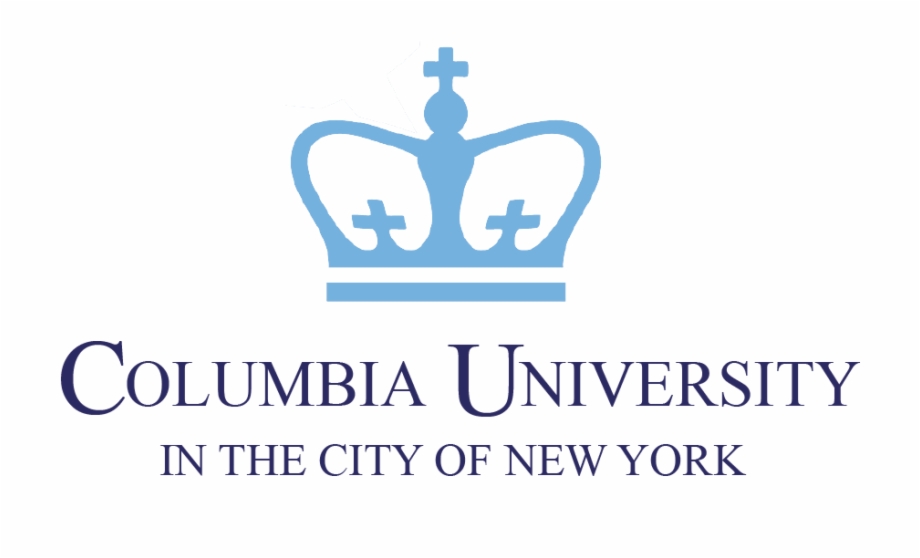
PhD in Computer Science
Ranked 12th by the U.S. News & World Report, the Fu Foundation School of Engineering & Applied Science at Columbia University provides a fast-track Ph.D. in Computer Science for its MS graduates with a minimum of 3.3 GPAs.
The 30-credit doctorate chaired by Dr. Rocco Servedio starts each Spring or Fall with 4000-level Columbia Video Network courses and one-on-one research advising.
Available specializations, including:
- Machine Learning
- Network Security
- Computational Biology
Learn more about Columbia University’s Fast Ph.D. degree program in Computer Science.
University of North Dakota
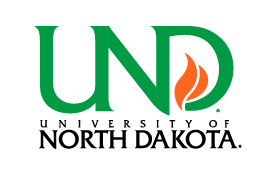
PhD in Biomedical Engineering
The College of Engineering & Mines at the University of North Dakota, America’s 185th top research institute on Forbes, logs into Blackboard for a quick Ph.D. in Biomedical Engineering overseen by Dr. Hesham El-Rewini.
Open until August 1st, December 1st, or May 1st, the 60-credit, post-master’s program meets ABET standards for medical device innovation.
Within just two years, graduates can advance at Siemens, Baxter International, Pfizer, Philips, and others for a median $82,000 salary.
Would you like more information about the University of North Dakota’s Ph.D. in Biomedical Engineering program? Take a look!
University of Missouri

PhD in Nursing
Founded in 1901, the Sinclair School of Nursing at the University of Missouri ranks 108th nationally on Niche for seven degrees, including the accelerated Ph.D. in Nursing that enhances clinical research skills.
The 56-credit, post-MSN program administered by Dr. Sarah Thompson takes registered nurses only two years full-time.
Canvas courses focused on:
- Population Wellness
- Health Systems Innovation
- Symptom & Behavior Science
These are paired with two four-day Columbia intensives annually.
To learn more about the PhD Programs at the University of Missouri, check out their Ph.D. in Nursing.
Hampton University

PhD in Educational Management
Chaired by Dr. Linda Malone-Colon, the School of Liberal Arts & Education at Hampton University, Times Higher Education’s 191st top pick, offers Blackboard access to a speedy Ph.D. in Educational Management lasting 2.5 years.
The 66-credit, CAEP-accredited curriculum immerses certified teachers in four concentrations:
- Higher Education
- PreK-12 Education
- STEM Leadership
- Special Education
Apply before January 15th with GRE scores above 150 to begin accelerated, nine-week courses on school reform methods.
Learn more about Hampton University’s Ph.D. Program offering a graduate degree in Educational Management.
American University

PhD in Communication
Named America’s #1 most politically active on The Princeton Review, American University started the Three-Year Ph.D. in Communication in 2011 within the ACEJMC-accredited School of Communication.
The 54-credit, full-time program organized by Dr. Kathryn Montgomery accepts post-master’s candidates until December 15th yearly.
Blended courses in DC and on Blackboard follow an 11-month calendar year for three fast emphases:
- Public Engagement
- Media Institutions
- Media Technology & Culture
Do you need an accelerated Ph.D. in Communications? See American University’s fast Ph.D. Programs.
Old Dominion University

PhD in Instructional Design & Technology
Old Dominion University grants a 60-credit Ph.D. in Instructional Design & Technology online via the Darden College of Education, which ranks 105th on the U.S. News & World Report with 580 graduates enrolled.
Headed by Dr. Jane Bray, the 2008 Pennsylvania Teacher of the Year, the post-master’s option logs into Monarch Key accounts for live meetings.
Interactive Web courses like Distance Education and Learning Assessment end with a dissertation in as little as three years.
Learn more about the Ph.D. programs at Old Dominion University. They offer an exceptional Ph.D. program in Instructional Design and Technology.
Lesley University
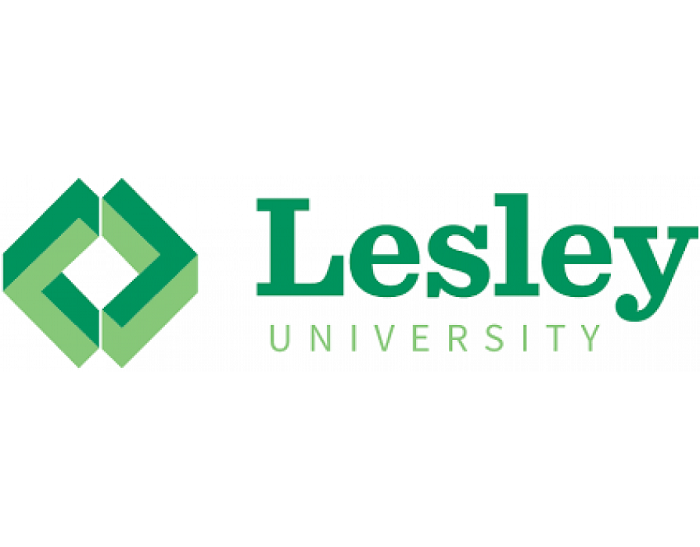
PhD in Expressive Therapies
The Graduate School of Arts & Social Sciences at Lesley University, Washington Monthly’s 129th best institution, created the Low-Residency Ph.D. in Expressive Therapies for counselors integrating the arts in mental health practice.
Managed by Dr. Michele Forinash, LMHC, the 45-credit program totaling $57,475 takes around 36 months for art therapists with 3-5 years of professional experience.
Courses are primarily on Blackboard with only one three-week Cambridge trip each summer.
Are you interested in earning a graduate degree in Expressive Therapies? Take a look at Lesley University’s Ph.D. degree program.
Colorado State University

PhD in Systems Engineering
Placed 216th for research influence by the CWUR, Colorado State University-Fort Collins awards 49 doctorates, including the Online Ph.D. in Systems Engineering, from the ABET-accredited Walter Scott Jr. College yearly.
This 72-credit degree outlined by Dr. David McLean transfers 30 master’s credits for accelerating toward dissertation completion in three years.
On-demand Canvas lectures like Energy Networks and IT Project Management are designed with input from 600+ industry leaders.
Learn more about Colorado State University’s Ph.D. in Systems Engineering degree program.
Mississippi State University
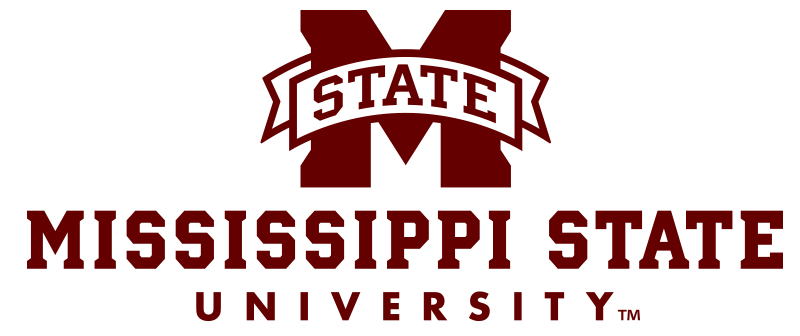
PhD in Community College Leadership
On Blackboard Learn 9.1, Mississippi State University awards the Ph.D. in Community College Leadership quickly via America’s 60th best College of Education on Niche for post-master’s teachers with cumulative GPAs above 3.3.
The 61-credit, CAEP-accredited curriculum overseen by Dr. Richard Blackbourn minimizes Starkville trips during courses like Personnel Diversity and Educational Data.
Individuals applying by October 1st or March 1st could enter junior institution administrative roles in as little as 36 months.
Mississippi State University has an excellent accelerated Ph.D. program in Community College Leadership. Check it out!
Nova Southeastern University
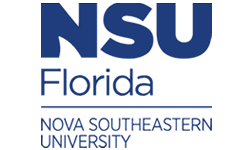
PhD in Criminal Justice
Bestowed the 2011 IAP Distance Education Award, the College of Arts, Humanities & Social Sciences at Nova Southeastern University ranks 41st on the U.S. News & World Report for its three-year Ph.D. in Criminal Justice on Canvas.
The 60-credit program chaired by Dr. Kimberly Durham admits post-master’s Fall cohorts until May 22nd.
Graduates take two courses each 14-week trimester to accelerate three concentrations:
- Behavioral Sciences
- Juvenile Justice
- Organizational Leadership
Learn more about the accelerated Ph.D. Programs at Nova Southeastern University, particularly… their Ph.D. in Criminal Justice!
Clemson University

PhD in Parks, Recreation and Tourism Management
Attracting 61 doctoral candidates, the Ph.D. in Parks, Recreation, and Tourism Management has gone digital after a 35-year, COAPRT-accredited history in the Graduate School at Clemson University, America’s 72nd best value in Money magazine.
The three-year plan devised by Dr. Wayne Freimund has 60 credits, including dissertation work, primarily on Canvas.
Applying for this fast doctorate requires a master’s GPAs over 3.0, at least 2,000 hours of recreation therapy experience, and NCTRC certification.
Do you have a passion for Tourism? See Clemson University’s Ph.D. program in Parks, Recreation and Tourism Management .
Oregon State University
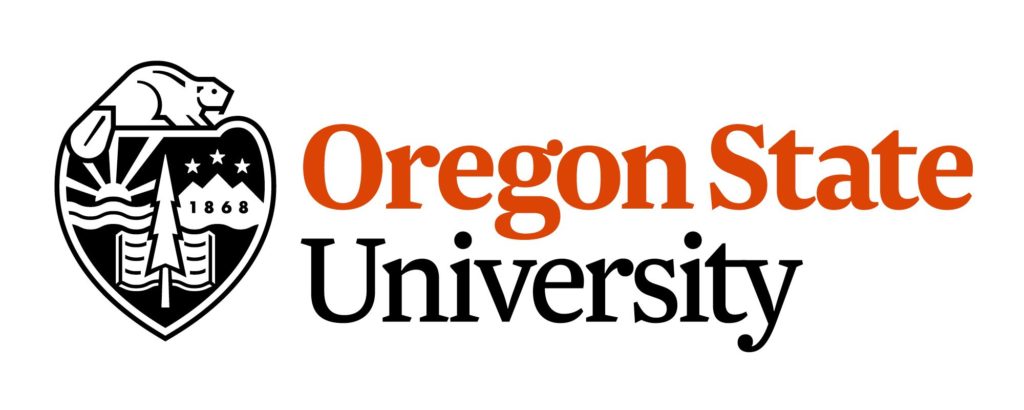
PhD in Counseling
The Oregon State University Ecampus connects to the CACREP-accredited College of Education, which places 130th nationally on the U.S. News & World Report, for three-year Ph.D. in Counseling cohorts ready to resolve human suffering.
Directed by Dr. Lisa Schulz, the 150-credit, the scholar-practitioner program has four 11-week quarters yearly for quick completion.
Master’s entrants with 600 previous internship hours apply by January 31st to begin Blackboard courses and two Wilsonville residencies per term.
Learn more about the Fastest Ph.D. in Counseling Program at Oregon State University.
Indiana University of Pennsylvania

PhD in Safety Sciences
Crowned Forbes’ 238th best public school, Indiana University of Pennsylvania utilizes Blackboard Web conferencing in the ABET-accredited Engineering Department to award an Online Ph.D. in Safety Sciences within just three years.
The 54-credit degree managed by Dr. Jan Wachter enforces OSHA occupational health regulations in accelerated cohorts.
Post-master’s candidates with minimum “B” averages access courses like Epidemiological Analysis digitally with one-week summer workshops in Johnson Hall.
Learn more about the Ph.D. in Safety Sciences Program at Indiana University of Pennsylvania. Take a look!
University of Northern Colorado

PhD in Special Education
Given CAEP “Nationally Recognized” status, the College of Education and Behavioral Sciences at the University of Northern Colorado landed 150th on the U.S. News & World Report for enrolling 888 online post-grads with a median 153 GRE score.
Particularly, the 77-credit Ph.D. in Special Education run by Dr. Silvia Correa-Torres takes as few as three years on the Extended Campus.
Certified P-12 teachers deepen disability awareness with nine fast courses like Law of Exceptionalities, an externship, and the dissertation.
Check out more about the Fastest PhD Programs at the University of Northern Colorado. They offer a great Ph.D. program in Special Education.
Union Institute & University

PhD in Interdisciplinary Studies
Union Institute & University, America’s 87th most diverse school on College Factual, utilizes its University Without Walls division to confer a 66-credit PhD in Interdisciplinary Studies Online in as little as 36 months.
Advised by Dr. Anuradha Mitra, the 2011 Greater Cincinnati Teacher of the Year, the HLC-accredited program requires just two residencies in January and July each year.
Students choose concentrations in Educational Studies, Ethical & Creative Leadership, Social Change, or Humanities & Culture.
Does your career require a Ph.D. in Interdisciplinary Studies? You’re in luck… Check out the Union Institute & University’s fast Ph.D. program.
Indiana State University
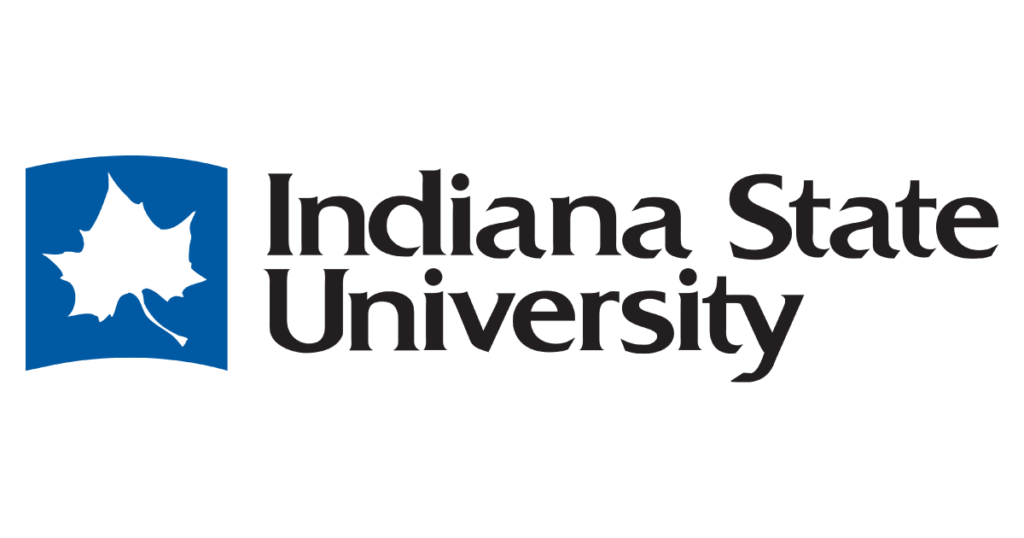
PhD in Technology Management
Celebrating its 50th anniversary, the ABET-accredited College of Technology at Indiana State University, Forbes’ 164th best Midwest institution, signs into Blackboard for seven graduate options like the Ph.D. in Technology Management.
This 66-credit degree headed by Dr. Nesli Alp helps STEM master’s holders advance in three years full-time or 4.5 years part-time.
Meeting the 3.5 GPA benchmark allows entry into tracks for Digital Communication, Quality Systems, Industrial Training, and Manufacturing Systems.
Learn more about Indiana State University’s Ph.D. in Technology Management degree program!
Embry-Riddle Aeronautical University

PhD in Aviation
In 2016, Embry-Riddle Aeronautical University launched the United States’ first Ph.D. in Aviation as the #1 most tech-savvy college on Online School Center to quickly produce research scholars studying the skies.
The College of Aeronautics led by Dr. Bruce Conway offers Aviation Safety & Human Factors, Operations, or Interdisciplinary tracks to this 60-credit, SACS-accredited major.
Apply before February 1st to start 12-week online Blackboard courses that require only three-week-long Daytona Beach visits total.
Are you ready to earn your wings? Check out this fast Ph.D. Program at Embry-Riddle Aeronautical University focused on Aviation!
Liberty University

PhD in Public Policy
Chosen for the NACCU 25th Annual Award in 2018, Liberty University is Niche’s #2 best online college countrywide that utilizes Blackboard to speedily confer the Christ-centered Ph.D. in Public Policy through its Helms School of Government.
The 60-credit major coordinated by Dr. Ron Miller accepts 15 transfer credits and has eight-week courses to finish in three years on average.
Virtual courses are tailored in:
- Economic Policy
- Education Policy
- Foreign Policy
- National Security Policy
- Social Policy concentrations
Will a fast Ph.D. degree in Public Policy help your career? Of course, it will. Check out Liberty University’s fast programs.
University of South Carolina

PhD in Nuclear Engineering
Designated the 97th best by the U.S. News & World Report, the College of Engineering & Computing in Swearingen Center lets University of South Carolina students attend the Ph.D. in Nuclear Engineering online via Blackboard.
The 48-credit, ABET-accredited curriculum administered by Dr. Hossein Haj-Hariri helps master energy production methods within three years for $104,000 median pay.
A few online courses, such as:
- Radiation Shielding
- Thermal Hydraulic Design
- Waste Management, involving Columbia residencies.
Learn more about the quickest PhD Programs at the University of South Carolina. They offer a Ph.D. program in Nuclear Engineering!
Indiana Wesleyan University

PhD in Organizational Leadership
Formed in 1983, the College of Adult & Professional Studies at Indiana Wesleyan University, the 83rd best private value in Kiplinger’s, approaches the Ph.D. in Leadership Studies from a Christian perspective with fast, three-year graduation.
The 60-credit hybrid degree managed by Dr. Mark Rennaker integrates lock-step courses like:
- Stewardship
- Entrepreneurship
- Organization Theory
Each 12-week term, graduates log onto Blackboard asynchronously and attend three Saturday sessions in Indianapolis.
Take a look at Indiana Wesleyan University’s Ph.D. in Organizational Leadership program. Check it out!
Frequently Asked Questions

In general, the typical Ph.D. program will take up to four years to complete; however, depending on the subject matter, it could take up to eight to ten years.
Accelerated Ph.D. programs are based on the premise that instead of spending years earning a doctorate degree , you can possibly earn your degree in three, or possibly two years!
For most who are entertaining the thought of earning a Ph.D., they have already established a career. Within their career, often people hit a roadblock when they have topped out at the best pay or have been promoted to the highest position that is allowed. However… if you had additional credentials to add to your resume, could you obtain a management or leadership position and earn more money? If so, earning a Ph.D. is for you!
Yes, of course, it will. After all, you are combining four years’ worth of work into two years, right? Pure dedication will get you through this awesome task, but be prepared to work extra, extra hard!
No, obviously, accelerated Ph.D. programs are only offered in topics that don’t require as much training, research, or internship experience. Business-related or education-related subjects are the most popular topics that offer accelerated doctoral degree programs .
See: Also: Life Hacks for Online Graduate Students
Related Article: The Most Affordable Online Doctorate Programs
Malcolm Peralty | Chief Editor, PremiumSchools.org
Malcolm Peralty has been a writer for over sixteen years with thousands of articles to his name online. He has co-hosted a wide number of podcasts and been a guest on many more. As a college graduate in Computer Networking… [ Read full bio ]
Malcolm Peralty Chief Editor

154. How to Plan Your PhD w/ Hugh Kearns
Podcast: Play in new window | Download
Subscribe: Spotify | Email | TuneIn | RSS
A PhD Plan sounds like an oxymoron, but charting a path to graduation is one of the most important things you can do as a graduate student.
This week, we talk with Hugh Kearns of Thinkwell about why PhD planning is so challenging for students, and learn about some tools that can keep your research on track.
Uncharted Territory
We start the conversation by trying to understand why planning is so difficult and so rare for PhDs.
“They’ve never done a PhD so they don’t know what’s coming,” Kearns observes. “And your previous education doesn’t prepare for research.”
He continues, “Research by its nature is uncertain. Things go wrong. And then what happens is people think that ‘Because I don’t know, we just won’t plan anything! We’ll see what happens.'”
But just because you’ve never done a PhD before, and no one has pursued your particular branch of research, that doesn’t mean you can’t plan ahead.
In fact, there are already tools and strategies, adapted from project management in the business world, that will help you set some guide rails around your winding path to a PhD.
Getting Your PhD Plan Backward
Traditional ‘forward’ planning works great for a well-worn process, like building a house. Builders know from experience that you can’t build the walls until you’ve poured the foundation, and you can’t paint until the drywall is installed.
Each of those activities has a reasonably predictable timeline, so you can plan the construction of a home week by week until it’s finished.
But a PhD isn’t quite at prescriptive. Sure, you know you need to do a literature review, but how long does that take? And how long will experiments take?
The fact is, they’ll take as much time as you give them. There’s no definitive ‘finish line’ for a literature review the way there is for a construction project. You just need to decide how long you’re willing to give the review, and stop when it’s ‘good enough.’
That’s why Kearns recommends ‘backward planning’ for PhDs. You start with an end date in mind (usually when the funding runs out) and work back from there.
His book, Planning Your PhD: All the tools and advice you need to finish your PhD in three years , lays out the steps in detail, and provides some worksheets you can use to create a multi-year Thesis Plan .
In fact, he offers those worksheets for free on the website!
Drilling into Detail
With your Thesis Plan in place, you can begin the process of adding more and more detail to the events closest in time.
This ‘rolling plan’ recognizes that you don’t know what you might be doing on Tuesday March 25 at 3PM three years from now, but you CAN decide on some goals over the next six months.
And don’t stress out if those goals shift, or you don’t quite manage to meet them. If you revisit your plan on a regular schedule, you can adjust and adapt.
If you never set the goal, or never look back at what you planned, you’re guaranteed to drift as the months and years pass by.
Kearns shares some other tools, like his ‘To Day’ list that works in conjunction with your ‘To Do’ list to put a time component on your tasks. That way, you slowly make progress toward your goals, rather than watching your list grow more and more unmanageable.
The Paradox of Choice
Finally, we talk about the surprising fact having more options usually means you are less happy and get less done. Weird, right?
It’s the ‘paradox of choice,’ described by Barry Schwartz in his 2004 book of the same name, and this TED Talk .
For graduate students, that manifests as a list of things you need to get done: pour a gel, set up those reactions, manage the lab animals, read three papers, write a section of a review, respond to your PI’s email, and on and on.
And what happens when you have all those things you COULD be doing? You get overwhelmed and go scroll through Instagram instead.
Kearns recommends that you identify ‘The Next Thing’ (or TNT) and work on that. The smaller you make that task, the better!
We’ve learned over the years that PhD students don’t understand the meaning of the word “small”. Because they’ll say, “OK, I know what the task is: I’ll finish my literature review”. But this is still way too big. So now we use the word micro-task. For example, some micro-tasks are: * Add two paragraphs to the discussion section * Add the new data to Table 1 * Read my supervisor’s comments on my draft Planning Your PhD, by Hugh Kearns and Maria Gardiner
Keeping ‘The Next Thing’ manageable prevents your brain from shutting down and giving up.
And if you stack up enough ‘The Next Things’, day after day and week after week, you’ll soon be making measurable progress on your PhD!

One thought to “154. How to Plan Your PhD w/ Hugh Kearns”
There’s so many people that I’ve already approached and address the subject, and while it’s still needs to be addressed and is of great value to younger grad students… There’s something that I have experienced two times in my graduate student career, that I’ve yet to hear any academic institution discuss… What happens, when you are left alone when your advisor dies, and/or commits suicide? I realize this is a very small population of the onions that you speak to, but to those of us that I’ve gone through this, it is absolutely devastating. I’m the first person from my family to go to college, let alone grad school. Trying to finish my PhD was absolutely, not supported the least. When my advisor died it just sent things out of control. So, how do you propose to integrate maybe even in a small portion… However uncomfortable it may be, if a student is to be in such a situation where their advisor dies, And they are not receiving any support by their department which leaves them in even greater shock.. And perhaps I need them selves in limbo for years. This is what happened to me. But I had extenuating circumstances. I fought as hard as I could, While escaping a very unsafe home situation… Essentially, how do you bring up these topics for students for the worst possible case scenario for when things go wrong? Hopefully, they never do reach a point Were you have to learn that your advisor died or that you were advisor completed suicide in one of the parking garages is in your university. If you happen to plan your research out, let’s say perfectly; you have five research papers and you were on track to graduate and you were ready to give your defense And anticipated your graduation to be the next upcoming semester. You did everything right. Your plan worked. You follow the rules. What advice for students would you suggest, to prevent them from essentially falling apart completely? Because at the end of the day they put their entire lives into what they are doing here to finish up and move on with their lives. They put relationships and marriages and children on hold… So what happens when a disaster strikes? I think that should be a topic you might want to touch on in the future. Like I said, might be a small demographic, but I lost 1 advisor suddenly, An excellent professor to suicide, a remarkable and rising star an excellent lab-mate to suicide as well. I think that if we can integrate mental health and just kind of trickle it into conversations more, and dedicate more time to Just discussing it, and just discussing that mental health is as important as physical health… mental health won’t be as stigmatized as it unfortunately still is at this very day. Overall, I’m happy about the topic of this episode and this podcast in general. However, I think there are modern in inclusive pathways and things that Students really need help with especially regarding mental health and support… Especially when the loss of a lame or a advisor or a loved one… If any of this occurs, and they feel like they cannot reach out, that can be detrimental to your perfect research plan. So at the end of the day, your research plan could mean absolutely nothing. You have to essentially plan for the worst. Sounds sounds like a very pessimistic thing, I understand. But having gone through this myself, I don’t want anybody to ever experience what I have. We can only start making these extreme cases easier to deal with by Integrating it in our discussions. After all, it is quite relatable to your planning of your research and your PhD career. Because when your world gets turned upside down, your “plan” Could be dead or worthless. So where do you go from there? Just trying to provide a thought on my own take Hope it helps thanks for the podcast.
Leave a Reply Cancel reply
Your email address will not be published. Required fields are marked *
This site uses Akismet to reduce spam. Learn how your comment data is processed .
- Home »
- Blog »
How Long Does It Take To Get A PhD (Doctorate)?
Find your perfect postgrad program search our database of 30,000 courses.
- by Charlotte King
- In General , PHD
As with many things in life, how long it takes you to get a PhD depends mostly on you. Because doctorate degrees are flexible, the duration of study can vary. But if you work hard and are disciplined, how long will it take you to get a PhD
How long is a full-time PhD?
In most cases, PhD research involves full-time study. You should expect to dedicate around 35 hours per week to your work. However, in busy periods, such as writing up your thesis , you may need to work for considerably longer.
In the UK, it usually takes three to four years of full-time study to gain a PhD. Time is spent carrying out research and collecting data towards a thesis. Your thesis can take a year to write and will offer an original contribution to your subject.Once you have completed your thesis you will usually have to undertake a PhD viva to present, explain and defend your research.
Most students begin a PhD after completing a relevant masters course. A masters degree will usually take around one year to complete if you are studying full time, or two to five years if you are studying part time. So from undergraduate to doctorate, you should expect it to take at least four years full time.
In Europe, the time it takes to gain a PhD can vary depending on the country and the subject of study. For example, in Germany, a PhD in a scientific subject might take two to three years full time, and a doctorate in the arts or humanities may take four to six years full time. In Norway, all PhDs usually take three years on a full-time basis. Most countries are similar to the UK, where you complete your PhD once you have done a relevant masters course.
In Norway , all PhDs usually take three years on a full-time basis – here is a great explanation from the University of Oslo . It can take up to six years to complete a PhD on a part-time basis, but this way of studying is unusual.
The USA has a different university set up to the UK and Europe as most doctorate degrees are gained by going to Graduate School straight after you have completed your undergraduate degree. This means that the time it takes to gain your masters-level qualification is built into the time it takes to get your PhD. It is common for it to take four to five years to gain a Doctorate from the time you start Graduate School, but it can take up to eight years of full-time study. It depends on the institution and the type of PhD you choose.
Some institutions, like Franklin University, allow students to transfer credits and count professional work experience towards their doctorate degrees, so you could complete a PhD in as little as three years.
How long is a part-time PhD?
Studying for a PhD part time is a good way to accommodate other work or life commitments alongside your research. Typically, it takes twice as long as a full-time PhD and you will study for around 20 hours a week.
Not many PhD students undertake their doctorate on a part-time basis, but those who do will have between five and seven years to complete their PhD.
Part-time PhDs are unusual in Europe. In Germany, you could expect a PhD to take four to eight years. France is similar to Germany, and it takes around three to four years for a full-time doctorate in the sciences, and four to five years for a doctorate degree in the arts and humanities. At the University of Oslo, it can take up to six years to complete a PhD on a part-time basis.
Part-time and online PhDs are more common in the USA and these take anywhere from five to 10 years to complete.
How long is a distance learning PhD?
There are some doctorate degrees which are studied by distance learning. These online PhDs allow students to study at a location and time that suits their schedule. These tend to be part time only and usually take up to seven years to complete.
Entry requirements for a PhD
In the UK the vast majority of PhD candidates will begin a PhD after completing a relevant masters course . A masters degree will usually take around one year to complete if you are studying full time, or two to five years if you are studying part time. Once you've gained this qualification you can move onto the doctorate after you have excelled at your PhD interview.
Different countries in Europe have different traditions and regulations surrounding doctorate degrees. Most countries are similar to the UK, where you complete your PhD once you have done a relevant masters course.
Why does it take so long to complete a PhD?
Due to the complexity of the study and the amount of original research required, PhDs typically take longer to complete than other undergraduate degrees. It can take a long time to create a thesis, since you must make an original and noteworthy contribution to your field.
What is the deadline for finishing a PhD?
The deadline for submitting your PhD will be set by your university. In the UK, the deadline is defined by the last date on which you can submit your thesis. For most PhDs, the deadline is four years for full-time students and seven years for part-time students. It may be possible to extend the deadline up to four years, but this is at the discretion of the university.
Does funding impact the length of a PhD?
Generally, PhD funding providers will cover you for a set amount of time during the course of your PhD. Most students will aim to finish their PhD within the timeframe set by their funding provider to avoid incurring additional fees.
Self-funded students cover their own tuition fees and other related costs, therefore many self-funded students aim to complete their PhDs in the shortest time possible.

Read more about postgraduate tuition fees on our fees and funding information page .
Find your ideal PhD
Search for your ideal PhD or browse our collection of helpful PhD articles on Postgrad.
Editor’s note: this blog post was originally published in April 2018, it now contains some updated information.
amber is one of many potential private accommodation options for international postgraduate students. Other private student accommodation options are available and Postgrad.com advises you to research all your options thoroughly before making such a commitment. Postgrad Solutions accepts no responsibility for your choice of student accommodation and does not endorse or support amber.
Related articles
Dos & Don'ts Of A PhD Interview
How To Get A PhD
How To Find A PhD
How Much Does It Really Cost To Study A PhD In The UK?
Are You Ready For A PhD?
Postgrad Solutions Study Bursaries
Elisha June 25, 2019, 9:49 p.m.
I’m Wanting to be a child therapist so what degree would I need for this and how long would I be at uni for Thankyou
Charlotte King June 28, 2019, 1:59 p.m.
Hi Elisha, A bachelors degree in counselling, social work, or child psychology is often a good start for a child counselling career, and most child counsellors are usually required to earn graduate degrees as well. So that would be a minimum of 4 years study.
Amoo Monsuru Olukayode Nov. 24, 2021, 2:44 a.m.
I want to study abroad in any UK country
Charlotte King Dec. 6, 2021, 9:37 p.m.
We have a comprehensive section on postgraduate study in the UK to help you make your decision > https://www.postgrad.com/study-in-uk/ I hope it helps.
Juli Hanes March 9, 2023, 4:42 p.m.
You always provide great examples and real-world applications, thank you for your valuable contributions.
Charlotte King March 13, 2023, 5:08 p.m.
Thanks Juli!
Leave a comment
All contributors must be over 16 year olds
By submitting your comment you agree to our privacy policy .
- Accommodation
- Coronavirus (Covid-19)
- Distance Learning / Online Study
- Infographic
- International Students
- Jobs and Careers
- Mature Students
- MBA Programs
- Personal Statement
- Student Life
- Student Welfare
- Study Abroad
- Study Advice
- Study In Australia
- Study In Europe
- Study In Ireland
- Study in UK
- Study In USA
- Theses and Dissertations
- Top 10 Lists
- Universities

Exclusive bursaries Open day alerts Funding advice Application tips Latest PG news
Complete Our Destination Survey

Take 2 minutes to complete our Destination Survey for the chance to win a Postgrad Study Bursary worth £2,000.
All we need to know is:
- Your university
- Your PG course
- Graduate School
How Long Does it Take to Get a PhD?: A Go-Getter’s Guide to Graduation
Featured Expert: Dr. Charlene Hoi, PhD

How long does it take to get a PhD? On average, PhD programs are 4 or 5 years long. The time it takes to get a PhD is slightly longer in the US, between 4-6 years, because these programs tend to be more structured. If you want to know how to get a PhD in Canada or Europe, you can expect it to take 3-5 years. However, there are PhD programs that take longer, such as part-time programs, or are extremely short, like online accelerated PhD programs. Ultimately, how long it takes to get a PhD is up to you. In this article, we’ll look at the average PhD program lengths, the typical PhD timeline, and tips on how to get your PhD finished faster.
>> Want us to help you get accepted? Schedule a free initial consultation here <<
Listen to the blog!
Article Contents 13 min read
How long does it take to get a phd.
On average, it takes 4-5 years to complete a Doctor of Philosophy (PhD) program. In the US, most PhD programs are between 4-6 years, while in Canada they are typically shorter, around 3-4 years.
Some students take longer than 6 years to complete their PhD, but in general the longest time it takes to get a PhD is capped at 8 years. If you’re enrolling in a part-time PhD program, for instance, your timeline will probably be extended to 6-8 years.
The shortest PhD programs out there are accelerated or sometimes online PhD programs. Some of these are only 1-2 years long, but there are comparatively fewer programs available, and they are only suitable for certain fields and careers which require less intensive research which defines most PhD programs.
One of the main reasons why it takes many years to get a PhD is because these programs are comprehensive and the requirements to graduate are extensive. Most have a set number of credit hours you need to complete, examinations to write, plus you’ll need to write your PhD thesis or dissertation, unless you pursue a PhD without dissertation .
There are certainly ways to shorten the PhD application timeline and time to graduate, which includes enrolling in a shorter program if possible, increasing your course load or the number of research hours you can dedicate per week, but generally a PhD will still take some time.
Even if you want to do a PhD without a master’s degree first, such as by applying to a direct entry PhD program, the program is still usually 4-5 years long.
We’ll take a look at the typical PhD timeline and how long it takes to get a PhD normally. After, we’ll cover some tips on how to get your PhD done faster or how you can avoid dragging things out.
In North America, the typical PhD program is divided into two stages. The first stage is where you complete all the required coursework, comprehensive exams and other academic requirements, depending on the program. The second stage is when you submit a proposal for original, independent research, get it approved and start working on your thesis or dissertation. Your PhD culminates with your thesis defense. Once your thesis has been approved, you’ll be eligible to graduate.
This timeline is somewhat flexible, as you might complete the first stage in 1 or 2 years but take longer to complete your dissertation. For the purpose of this general PhD schedule, we’ll assume your PhD program is a typical length of 4-6 years.
Application Stage
We’ve included the application stage of getting your PhD here first because the grad school application timeline can take several months to put together your application package and hear back about acceptance to a program. Secondly, because the application stage involves some critical steps you’ll need to complete in order to get your PhD.
1. Research proposal
To apply to a PhD program, you’ll most likely be required to submit a research proposal and be prepared to answer any research proposal questions your advisor will have. This is your “proposal” of what research question you will explore during your studies at a program, or an outline of what research topic you want to pursue. If you’re not sure how to write a research proposal, check out these Oxford PhD proposal samples or a Cambridge PhD proposal sample.
2. Application materials
The admission requirements for a PhD can vary from program to program, but here are the general components of a PhD application:
- Required prerequisite coursework
- Official transcripts (and minimum GPA)
- Graduate school statement of purpose
- CV for graduate school or research resume
- PhD motivation letter
Some programs may also ask you to submit additional essays, such as a letter of intent, research interest statement or grad school career goals statement .
Many PhD programs also invite you to a grad school interview to get to know you better. Be ready for common graduate school interview questions such as “ tell me about yourself ” and “ why do you want to do a PhD ?”
PhD Years 1-3: Coursework Stage
1. orientation.
Your PhD program will usually begin with your orientation, where you’ll learn about the program’s individual structure, requirements and expectations. You’ll also either choose or be assigned an academic advisor and schedule an initial meeting with them. Your advisor will be a member of the university faculty who will act as your support while you complete your research and write your thesis.
2. Coursework
The first year or two of your PhD will involve completing required advanced coursework in your field. You’ll attend lectures and seminars and you may participate in research projects with department faculty or fellow graduate students or even lab work, depending on your field.
3. Electives
Along with required coursework, you’ll have the chance to take elective courses that interest you or relate to your field. It’s important to choose electives that will enrich your program. Choose ones that really interest you, that might help inform your PhD research or that will help you fulfill your credit requirements.
4. Extracurriculars
PhD programs sometimes have extracurricular activities or additional requirements outside the classroom. This can include internships or a practicum you need to complete for credit, or you might be interested in attending academic conferences or relevant events to socialize and network you’re your colleagues in the field.
5. Comprehensive exams
The coursework stage of your PhD program will end with comprehensive exams , sometimes called qualifying or preliminary exams. These are your “final exams” to make sure that you completed the necessary PhD coursework and that you’re ready and qualified to take on your own independent research in the next phase.
1. Thesis proposal
You may recall that you submitted a research proposal as part of your PhD application, and this step of the process is similar. Your thesis proposal is just like your research proposal, but it’s a more refined and developed version. Throughout your coursework, your research question might have changed or you might have changed course a little bit. If you’re still thinking about your PhD topic , take the time to solidify it before you reach the thesis proposal stage.
Your research proposal might have been a first draft, while your thesis proposal is your official announcement of: this is what I propose to research in this PhD program.
Depending on your field and the program, you thesis research might involve a great deal of lab work, or data collection or fieldwork. Whatever the case, your thesis proposal is a complete outline of what you intend to do for this independent research project and the steps you’ll take.
2. Thesis approval
Once your proposal is written, you’ll submit it for approval. Your academic advisor, PhD supervisor or the PhD committee overseeing your program will review it and either approve it or make suggestions for changes. Once it’s been polished and finalized, you’ll be given the go ahead to start conducting your research.
3. PhD research
Your research alone will probably take you several semesters to complete. On top of the fieldwork, lab work or data collection and analysis you’ll be completing, you’ll be using this time to write and review. Writing your thesis or dissertation takes a fair number of hours to outline, draft, edit and complete. It also means hitting the books to complete a literature review of your research topic so you have a complete background understanding of your chosen topic and how it will inform your research.
Your research and the preparation of your thesis is really the biggest part of this second stage, and is probably the longest part of your PhD altogether.
4. Extra requirements
When you’re not deep in your research, you’ll be completing other requirements of your PhD program or additional duties that enrich your education. Some programs require you to dedicate some hours to teaching, whether it be leading seminars for undergraduate students or acting as a teaching assistant for university faculty.
You’ll also be strongly encouraged to publish as a graduate student , so you may be involved in the research projects of faculty members or other grad students when you’re not working on your dissertation.
5. Thesis submission and preparation for thesis defense
When you’re finished writing your thesis and you’re ready to submit it, it’s critical to know how to prepare for thesis defense . Because not only do you have to complete this original, new body of research work, you have to get the approval of your PhD committee to put it out into the world.
Your thesis defense is essentially the final presentation of your PhD.
6. Thesis defense
Your thesis defense is an oral presentation of your research project, but it also involves submitting your written document to be reviewed. Essentially, you’ll present the entirety of your thesis to the PhD supervising committee, including your findings and conclusions. From there, the committee will ask thesis defense questions . Your answers will defend your methodology and results to the committee, basically proving the value and validity of your work. While this is an evaluation of sorts, it is also your opportunity to share your original ideas and invite further research into your topic.
After your defense, the PhD committee will either approve your thesis or send it back to you with edits or changes to be made before it can be formally approved.
Graduation and Postdoc
Once your thesis has been approved, congratulations! You’ll be eligible for graduation and be awarded your degree. Now that you’ve finished this marathon, you can choose to pursue further studies or start looking for a job after grad school .
With a PhD, you have many different options for positions in your field. You might want to know how to find a job in academia or how to get a tenure track position at a university if you’re interested in teaching others. PhD graduates who decide to transition from academia to industry or who would rather work outside the realm of academia can find industry jobs after PhD that suit their skills and experiences.
Either way, you’ll need to prepare for how to find a postdoc position, explore what the career options are for you, decide what your career goals are and start sending out applications. Remember to prep your postdoc resume and get read for postdoc interview questions , since the job hunt will begin soon after you finish your PhD!
Is it possible to get your PhD done faster? What are some ways you can speed up the process and avoid taking 8 years to complete your graduate studies? Luckily, there are many key ways you can make your journey through grad school easier and speed things up a little, from the type of PhD program you choose to the habits and skills you cultivate during your program.
#1 Enroll in an accelerated program
The first way to guarantee it will take less time to get your PhD is to, of course, enroll in a shorter PhD program. Direct entry PhD programs allow you to enroll once you’ve completed your bachelor’s degree in exceptional circumstances. Note that these are not the easiest PhD programs to get into , as your academic record needs to be excellent, and you’ll likely need prior research experience and you may even need to have publications already. However, a direct entry PhD program is around 4-5 years, but it allows you to skip the 1-2 years it would take to earn a master’s degree.
You can also choose to enroll in an online or accelerated PhD program that is designed to be much shorter than the traditional PhD. Once again, though, these programs are not available to students in every field, so you may need to research whether there are any options for you.
#2 Choose the right mentor
One of the first things you can do to ensure your PhD is smooth sailing is to choose the right mentor or academic advisor. Many programs allow you to choose your advisor, while some assign one to you. Whatever the case, it’s important to establish a strong working relationship and clear expectations early on.
One of the first things you’ll do as a PhD student is meet with your advisor. Take the time to discuss with them what your expectations for the program are, ask questions and ask them what their expectations are of you. Your advisor is there to help you and advise you, and they have resources and connections you can use to your advantage. But they are also working with a busy schedule and might be advising more than one PhD student, too. A mutually respectful relationship with open communication will ensure fewer interpersonal hurdles down the road.
#3 Earn credit hours faster
One way you can shave some time off your PhD is by earning your credit hours faster and getting to the research and thesis-writing stage faster. This might mean you take on a full-time course load or ask your advisor for ways to earn extra credit, such as participating in research projects. Some PhD programs will give you course credit for previous graduate level coursework you might have completed during your master’s degree, or for certifications and professional education you completed outside of school.
#4 Keep your thesis focused
When you get started on your research, it’s easy to feel overwhelmed with the amount of work you need to complete, with the writing of your thesis on top of it all. One way to keep your research hyper-focused and on point is to keep your thesis topic narrow. If your subject is too broad, you’ll be spending way too much time in your research. Give yourself clear objectives and scope, and don’t deviate from your PhD proposal if you don’t have to.
There may be a million questions you want to explore within your PhD topic, but there will be other opportunities to explore them. Keep your focus narrow so you don’t spend years and years asking and answering research questions!
One of the best things you can do to get your PhD done faster and adjust to the experience of graduate school is to change your thinking. Adopt a growth mindset so that you’re open to new learning, willing to listen to constructive feedback on your proposal or thesis and willing to grow your skills. A PhD is an advanced program, and you’ll already be very skilled, but it is also an opportunity to learn and grow. There will be challenges for you, so be ready to meet and overcome them instead of letting them draw you back or slow you down.
#5 Develop your professional skills fast
A PhD is an opportunity to grow your professional skillset as much as it is an opportunity for you to contribute meaningfully to your field. If you haven’t already been working on skills such as communication, presenting or lecturing and writing, now is the time to start.
Strong writing skills will help you get your thesis finished and edited faster, as you’ll be more familiar with the process and understand what makes a strong document. It’s also a useful skill to learn how to write effective funding proposals or grant proposals. You may need to do so to secure funding for your research, but it’s a highly valuable skill in the workforce, too.
Good presentation skills will help you during your thesis defense or if you’re asked to present during a conference. They will also help you build confidence in your voice and ideas and make you a better communicator when you’re networking or job searching.
#6 Keep to your schedule
This is maybe the most important skill if you want to finish your PhD faster: make a detailed schedule and hold yourself accountable to it. If you like, you can plan out your entire PhD week by week from Day 1. Write down what your course schedule is, when you’ll do research and how many hours, when you’ll write and how many hours, what extracurriculars or personal activities will take up your time and so on.
A detailed schedule gives you an overview of your PhD and a timeline of when you’ll finish. It will keep you organized and accountable, so you can avoid procrastinating or avoidable speed bumps that might slow you down. It also helps you compartmentalize the many items on your to-do list so you don’t stress out about how much you need to accomplish.
When creating your schedule, especially during the research stage when there is no formal class schedule for you to adhere to, focus on deliverables. Set a date when you will submit a section of your thesis to your advisor, or when you will complete your literature review. Setting goals and clear outcomes will keep you on track and focused.
#7 Take initiative and be independent
The last tip to help you get your PhD done faster is to take initiative. Remember that a PhD is a largely independent endeavor. You’ll have the support of a committee or advisor, but you can’t rely on them to do the work for you or put everything on hold if they aren’t available when you need them. Be flexible and adaptable so you can keep working and moving forward, even if your schedule gets interrupted or needs to change to suit your situation.
It's also important to take the initiative in your learning. Take advantage of opportunities for growth, networking, and gaining experience where you can. Get the most out of your PhD program and use your experiences to fuel your end goal of completing your thesis.
On average, it takes 4-5 years to get a PhD. There are a few factors that can influence the time it takes to complete your PhD, from program length and structure to what country you are earning your PhD in, to your own personal work ethic and schedule.
PhD programs in the US are on average 4-6 years. In Canada and the UK, they are usually 3-5 years long. Part-time PhD programs may take up to 7-8 years to complete. Direct-entry PhD programs and dual master’s and PhD programs are typically 5 years long. If you’re enrolling in an online, hybrid or accelerated PhD program, the timeline is usually 2-3 years, but there are some extremely short 1-year PhD programs offered online for specific disciplines.
Yes, you can finish your PhD before the “normal” timeline. For example, if you complete your coursework early, if you finish writing your thesis faster than average and get it approved, or if you otherwise complete all your PhD program requirements before the anticipated finish date.
Yes, there are online PhDs available for certain fields and disciplines. These typically range from 2-3 years, although there are some traditional 4-year PhD programs offered online. There are also some “accelerated” online PhDs which last 12-18 months.
A PhD program is not necessarily shorter if you first complete a master’s degree, but having gone through a master’s program can better prepare you to finish your PhD faster. Some PhD programs accept credit hours from your master’s degree towards the coursework requirements for a PhD, and if you’ve previously written a master’s thesis or completed some research during your graduate studies, this will be an advantage. Since you’ll already be familiar with the process of writing a thesis and conducting your own research, you can avoid some stumbling blocks in your PhD program that might otherwise slow down your progress.
Yes, it is possible to get a PhD without first completing a master’s degree. There are direct entry PhD programs that allow students with a bachelor’s degree to enroll, so long as they meet the admission requirements and have exceptional academic records. Some online PhDs also waive the master’s degree requirement.
Yes, it is possible to complete a traditional PhD program in a shorter amount of time than anticipate. This usually means dedicating yourself to full-time study or taking on a larger course load and increased research hours. It takes significant work, but it can be done with the right schedule and commitment.
The fastest PhD programs are the short, 1-year accelerated programs. These programs have fewer credit hours to complete, and some have no dissertation requirement, only qualifying exams to finish. However, there are not many programs out there, and they are not available for every field of interest.
Want more free tips? Subscribe to our channels for more free and useful content!
Apple Podcasts
Like our blog? Write for us ! >>
Have a question ask our admissions experts below and we'll answer your questions, get started now.
Talk to one of our admissions experts
Our site uses cookies. By using our website, you agree with our cookie policy .
FREE Training Webinar:
How to make your grad school application stand out, (and avoid the top 5 mistakes that get most rejected).

COMMENTS
1-Year Online Doctoral Programs. It is rare, but not impossible, to get your doctoral degree in less than two years. Learn how to set yourself up for success in a fast-track doctoral program. It is never too early to consider pursuing an advanced degree. Doctoral programs often require a significant commitment of time, with the average time to ...
1-year PhD programs online are perfect for students who don't have the time to pursue an on-campus program. Learn all about accelerated PhD programs. ... (Doctor of Nursing Practice) is probably the quickest PhD you can get today, as you can finish it in 12 months. Breyer State Theology University's Ethereal Accelerated Doctor of Psychology ...
2. Business Administration. An online DBA provides the best opportunity for you to accelerate a business doctorate. While these programs take an average of three years to complete, several schools offer fast-tracked online DBAs that offer more condensed schedules and classes year-round.
A one-year online Ph.D. program offers an accelerated path for scholars, focusing on intensive coursework and practical applications. As a student, you can expect to delve even further into your chosen field, gaining expertise through specialized classes and research projects. Coursework typically covers advanced theories, methodologies, and ...
Boston University. Boston University offers an accelerated Doctor of Occupational Therapy program that can be completed in 18 months. The program requires 33 to 37 credits and includes courses in evidence-based practice and health care management. It is fully online, allowing flexibility for working professionals.
Degree Required: MBA or other master's degree. Tuition: $50,000-$70,000. Program Length: 3-7 years. This 1-year PhD program online at the fully online Athabasca University can be completed in only three years, but you have a seven-year time limit to complete the program's 21 credit requirements.
Finishing a PHD in 1 year and 3 months means that 90% you have zero publications, since a Math journal would require several months for publishing an article. Although publications are not necessary for a Math PHD, many math PHD holders have many publications under their belt.
Graduation: End of Year One. Credit requirements vary by program. After students complete all required coursework, they must often submit a dissertation to graduate. Once they finish their research, doctoral candidates submit it for review and defend their conclusions. Examples of Fastest Doctoral Degree Programs for High-Salary Careers
Key Findings About the Shortest Online Doctoral Programs. Online doctoral programs with the shortest duration typically span from two to four years for completion. The approximate total cost of tuition and fees for online doctoral programs falls within the range of $30,000 to $75,000 annually.
7 stages of the PhD journey. A PhD has a few landmark milestones along the way. The three to four year you'll spend doing a PhD can be divided into these seven stages. Preparing a research proposal. Carrying out a literature review. Conducting research and collecting results. Completing the MPhil to PhD upgrade.
I am working on a PhD in chemical engineering, and my advisor mentioned to me today that I'm on track to finish in about half a year. I only have one class left to fulfill the course requirements and I have a few papers published, with a couple more almost finished. Personally, I'm in no hurry. I love grad school and working on research.
Baylor University is known for its EdD program (Doctor of Education)—especially its online program. And Concordia University in Nebraska has one of the best Master's in Accounting degrees in the country. It's relatively easy to find an online doctoral degree program. But finding the best program is a tougher task.
Curtis adds that the level of support a Ph.D. student receives from an academic advisor or faculty mentor can be a key factor in determining the length of time it takes to complete a Ph.D. program.
Go to: Rule 1: Plan Your Last Year in Advance. Preparing a plan of action for the final year of your PhD is vital. Ideally, devised and agreed upon with your supervisor, a plan will help to optimize the time left and reduce feelings of being overwhelmed.
That fall I began a 2/2 teaching load at a small university on the Yakama Nation Reservation as I continued to write my dissertation. Since finishing my PhD four years ago, in 2018, I have published one book, five research articles, and two edited volume chapters related in various ways to my dissertation. As someone living in rural Eastern ...
Many professional doctorate programs take close to six years to finish. Start-to-finish online doctoral programs like Franklin University's take much less time; about three years to complete. Because applied doctorates focus more on application than theory like Ph.D. programs, they can be ideal for busy, working professionals.
My husband (same cohort) also got an offer for a research position that required that he finish his PhD soon, so they also rushed him out. At the end of it all, my entire cohort finished their PhDs in 4-4.5 years, in a program that required three years of coursework. After a year or two, my old program fell into the same patterns.
PhD in Computer Science. Ranked 12th by the U.S. News & World Report, the Fu Foundation School of Engineering & Applied Science at Columbia University provides a fast-track Ph.D. in Computer Science for its MS graduates with a minimum of 3.3 GPAs.. The 30-credit doctorate chaired by Dr. Rocco Servedio starts each Spring or Fall with 4000-level Columbia Video Network courses and one-on-one ...
If coursework is in the picture, no way 2 years in is doable. If it's just a couple stats classes, then maybe. Imo, your advisor should not let you graduate until you both meet satisfactory requirements to earn a PhD, but also not let you graduate until you are competitive for your career goals. If you intend to stay in academia, two years ...
Buy me a coffee: buymeacoffee.com/r3ciprocityListen to my new podcasts: https://podcasts.apple.com/nz/podcast/r3ciprocity-podcast/id1588972364Yes, it is poss...
Uncharted Territory. We start the conversation by trying to understand why planning is so difficult and so rare for PhDs. "They've never done a PhD so they don't know what's coming," Kearns observes. "And your previous education doesn't prepare for research.". He continues, "Research by its nature is uncertain. Things go wrong.
Part-time PhDs are unusual in Europe. In Germany, you could expect a PhD to take four to eight years. France is similar to Germany, and it takes around three to four years for a full-time doctorate in the sciences, and four to five years for a doctorate degree in the arts and humanities. At the University of Oslo, it can take up to six years to ...
On average, it takes 4-5 years to complete a Doctor of Philosophy (PhD) program. In the US, most PhD programs are between 4-6 years, while in Canada they are typically shorter, around 3-4 years. Some students take longer than 6 years to complete their PhD, but in general the longest time it takes to get a PhD is capped at 8 years.
Some candidates can fast-track and finish in as few as two or three years, but many take up to six years or more. Factors to keep in mind include field of study, residency components, and whether a dissertation is required. Here's what a typical timeline might look like. Year. 1.